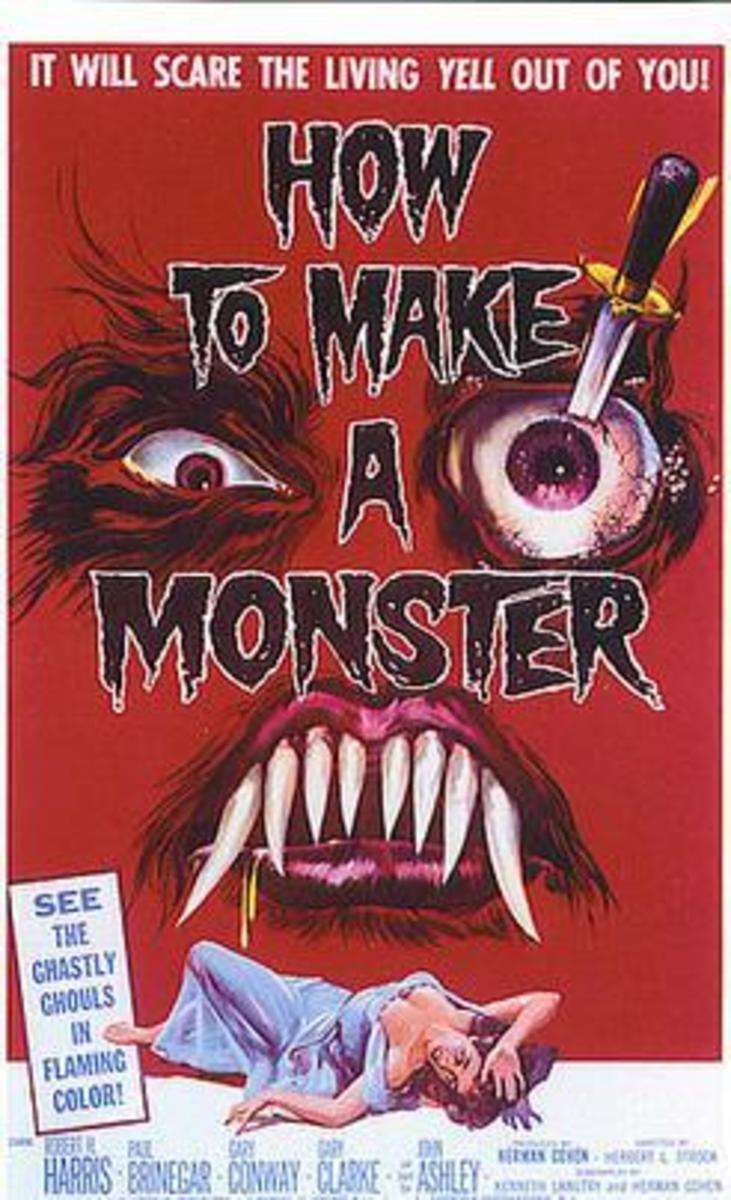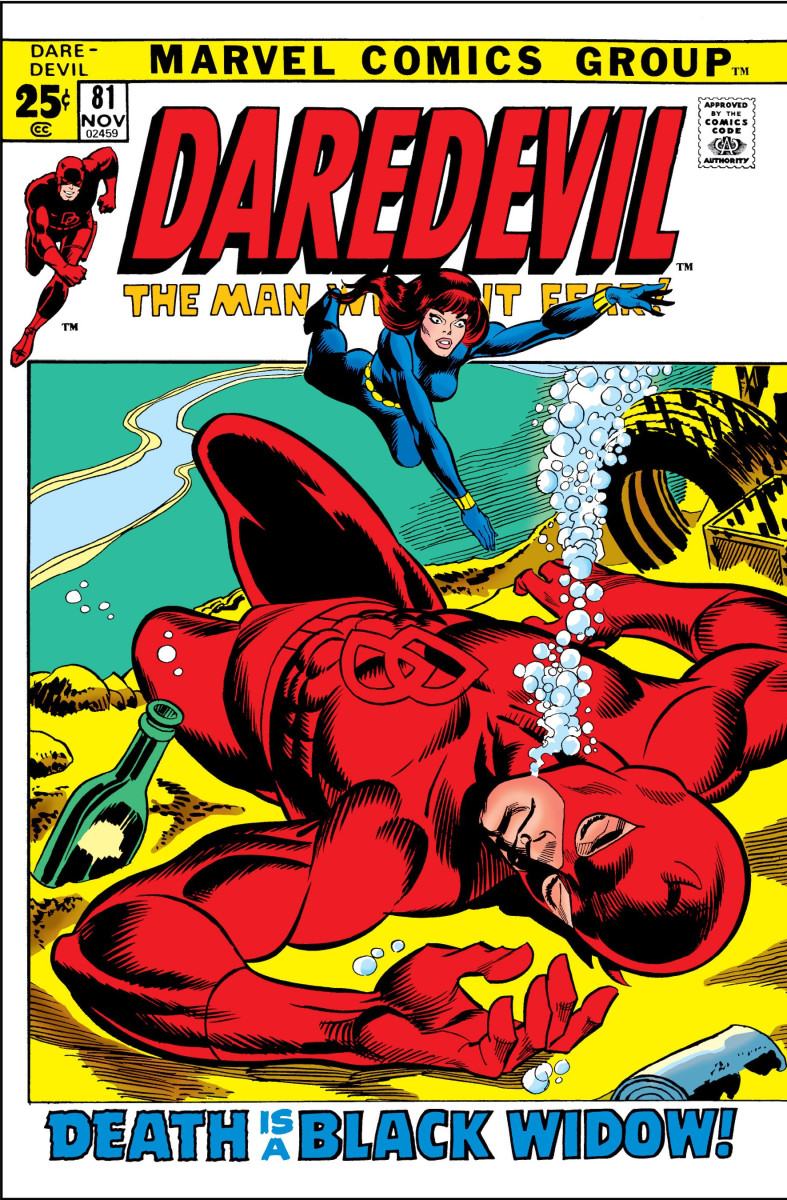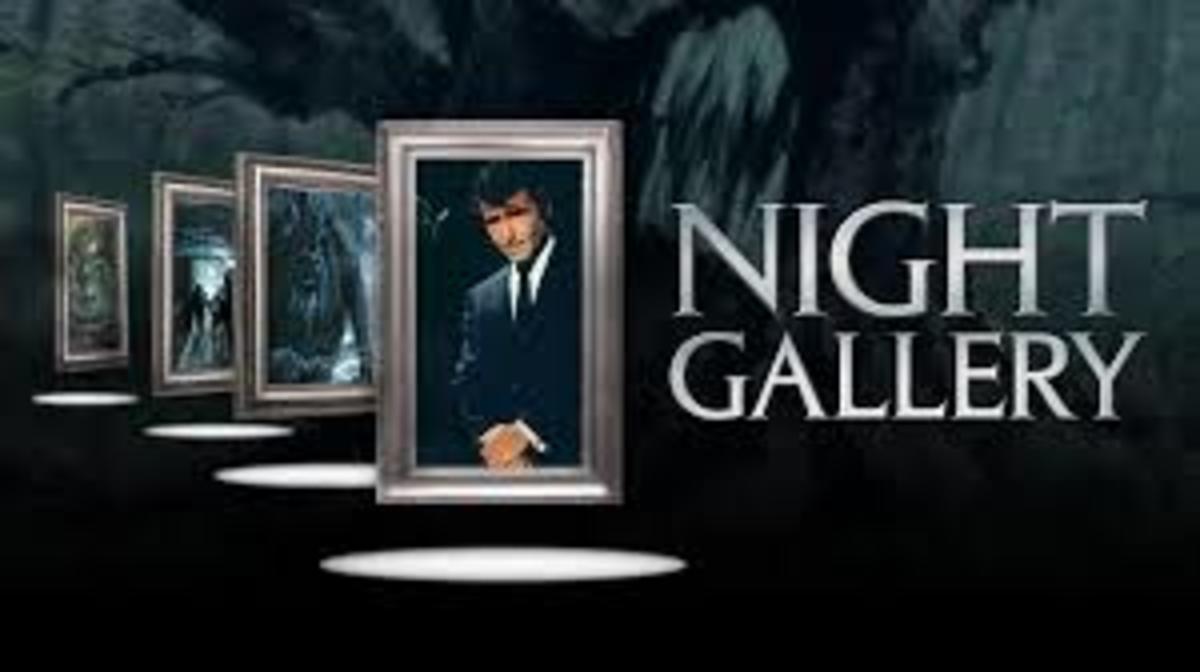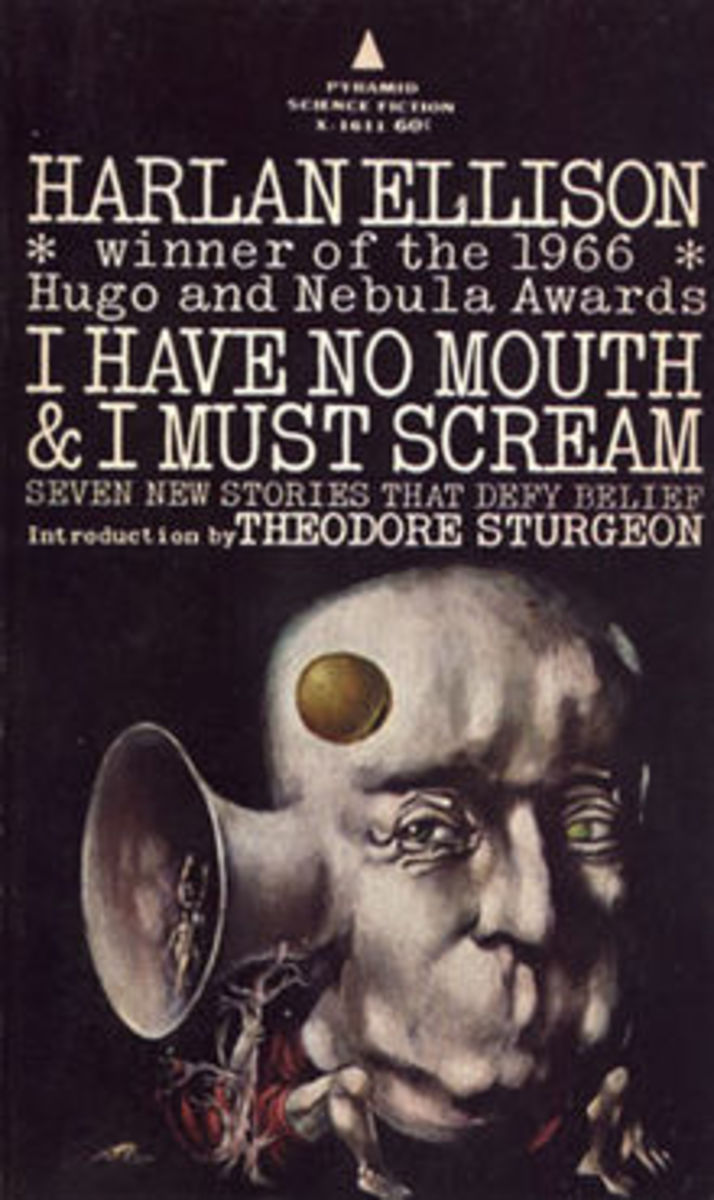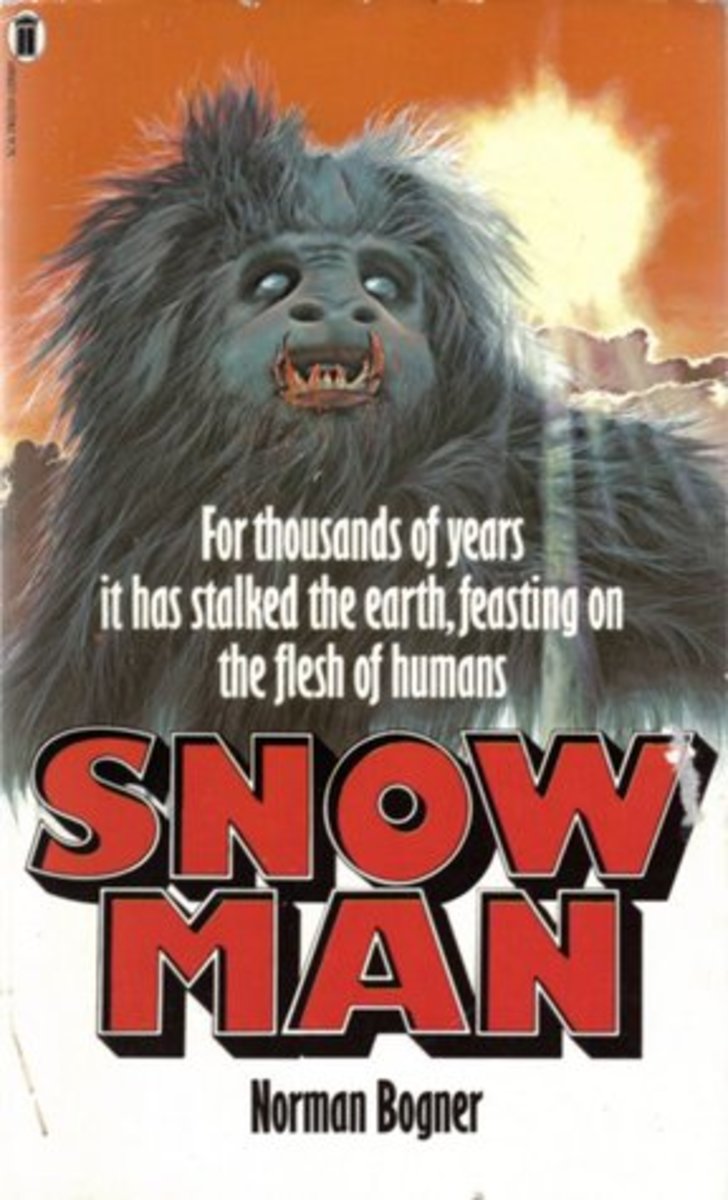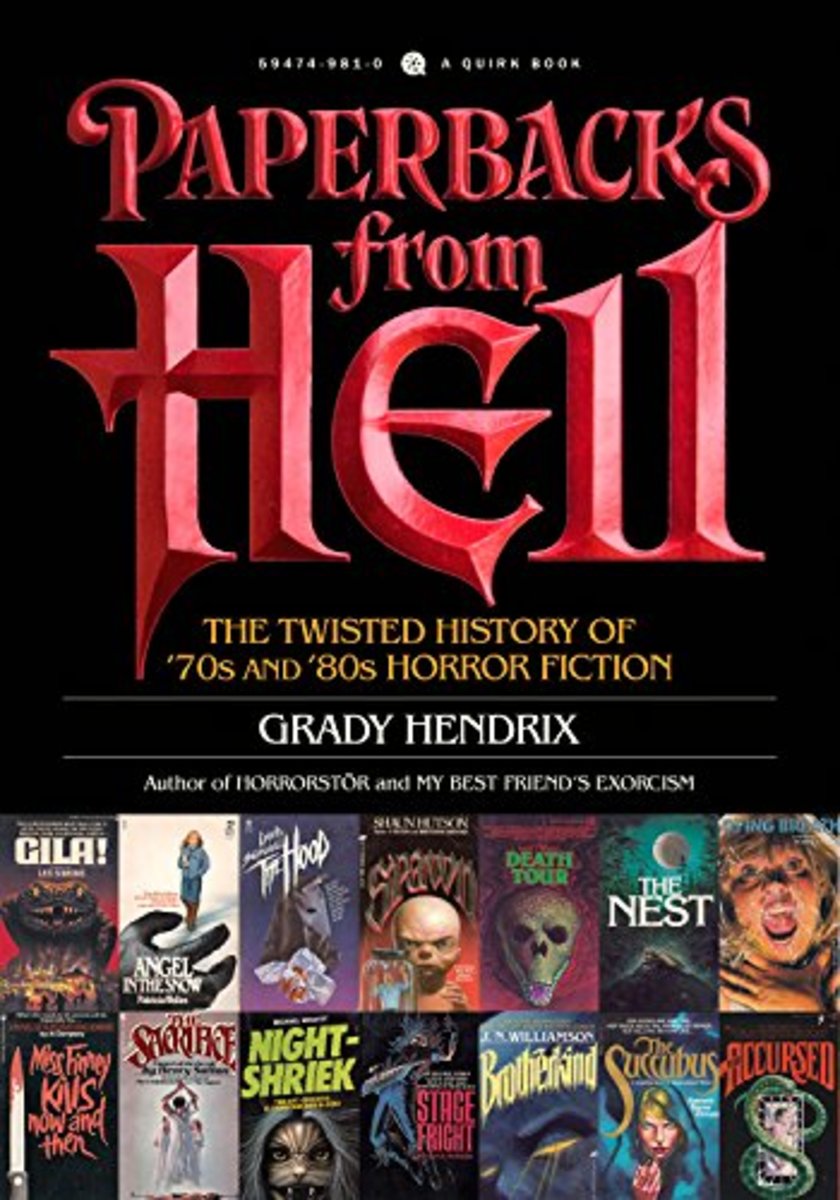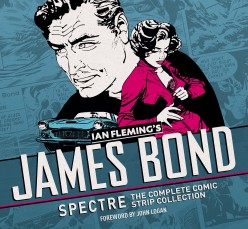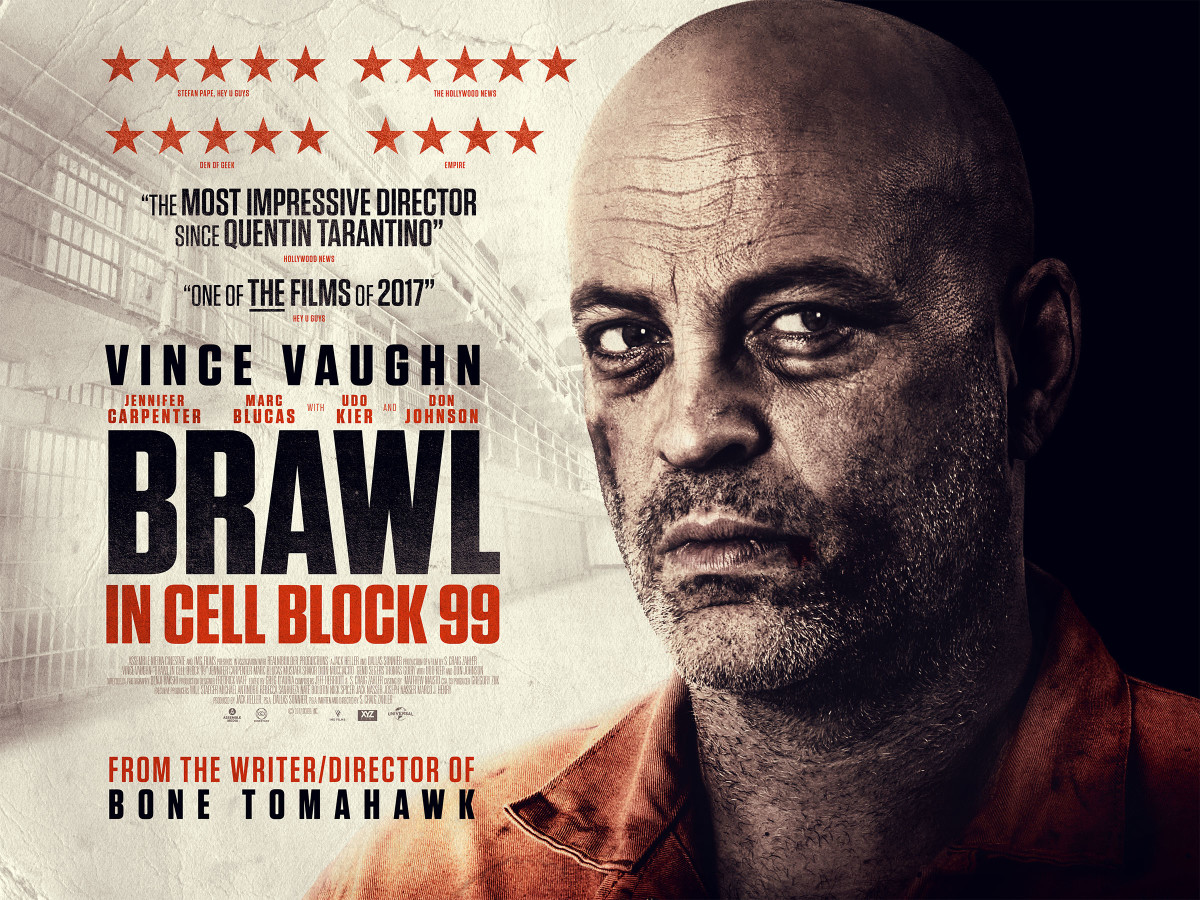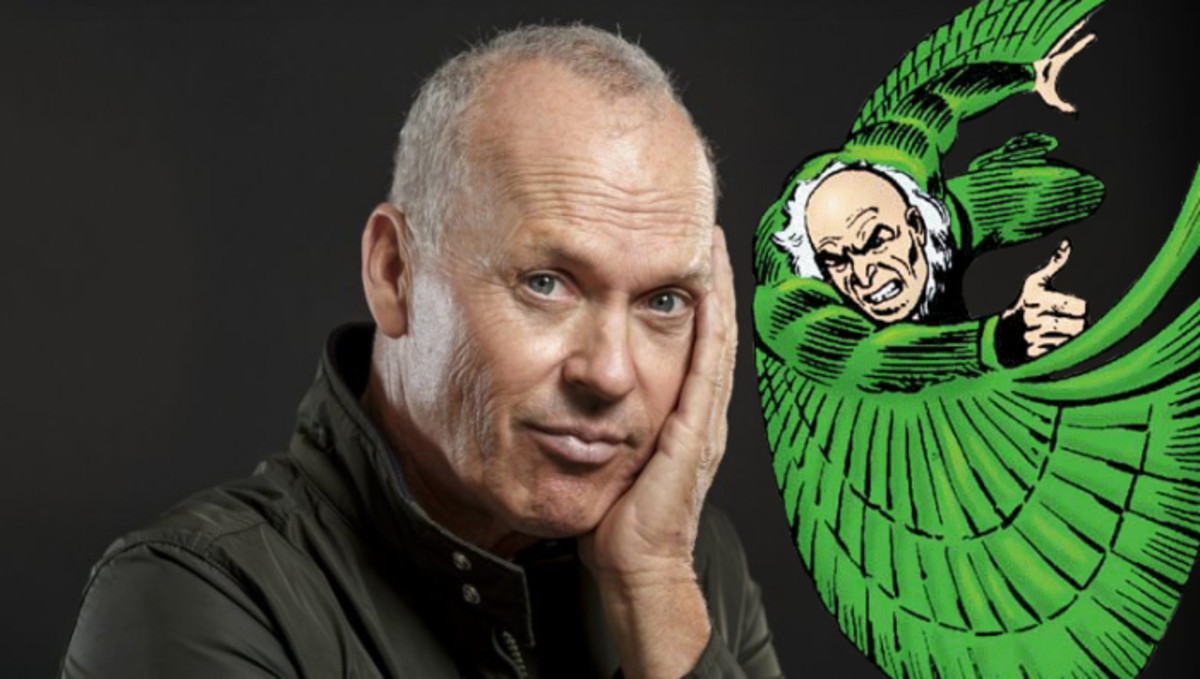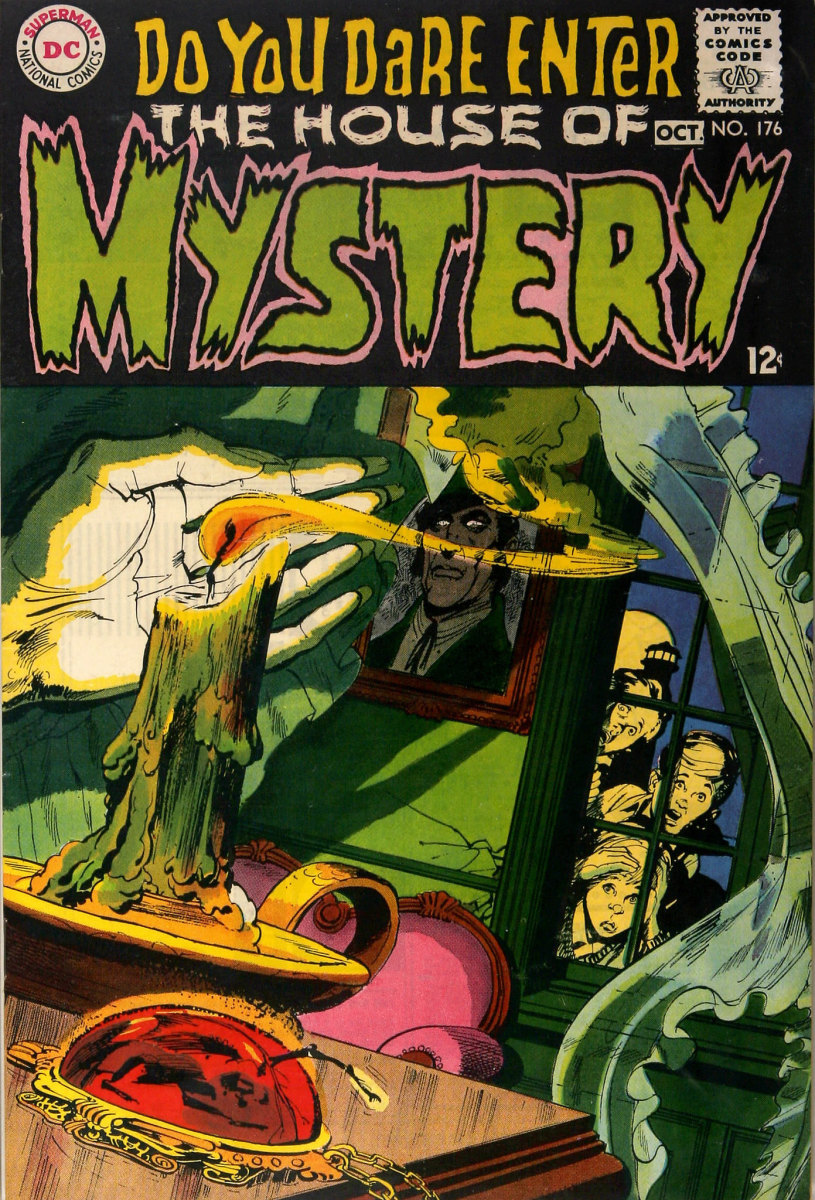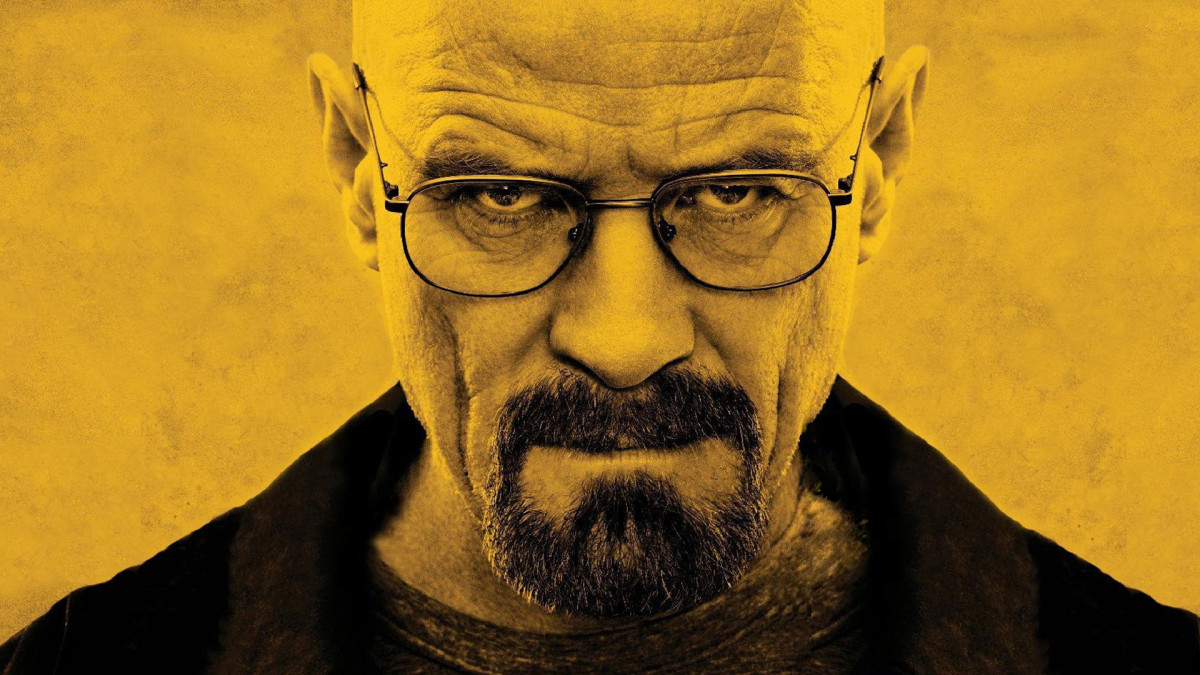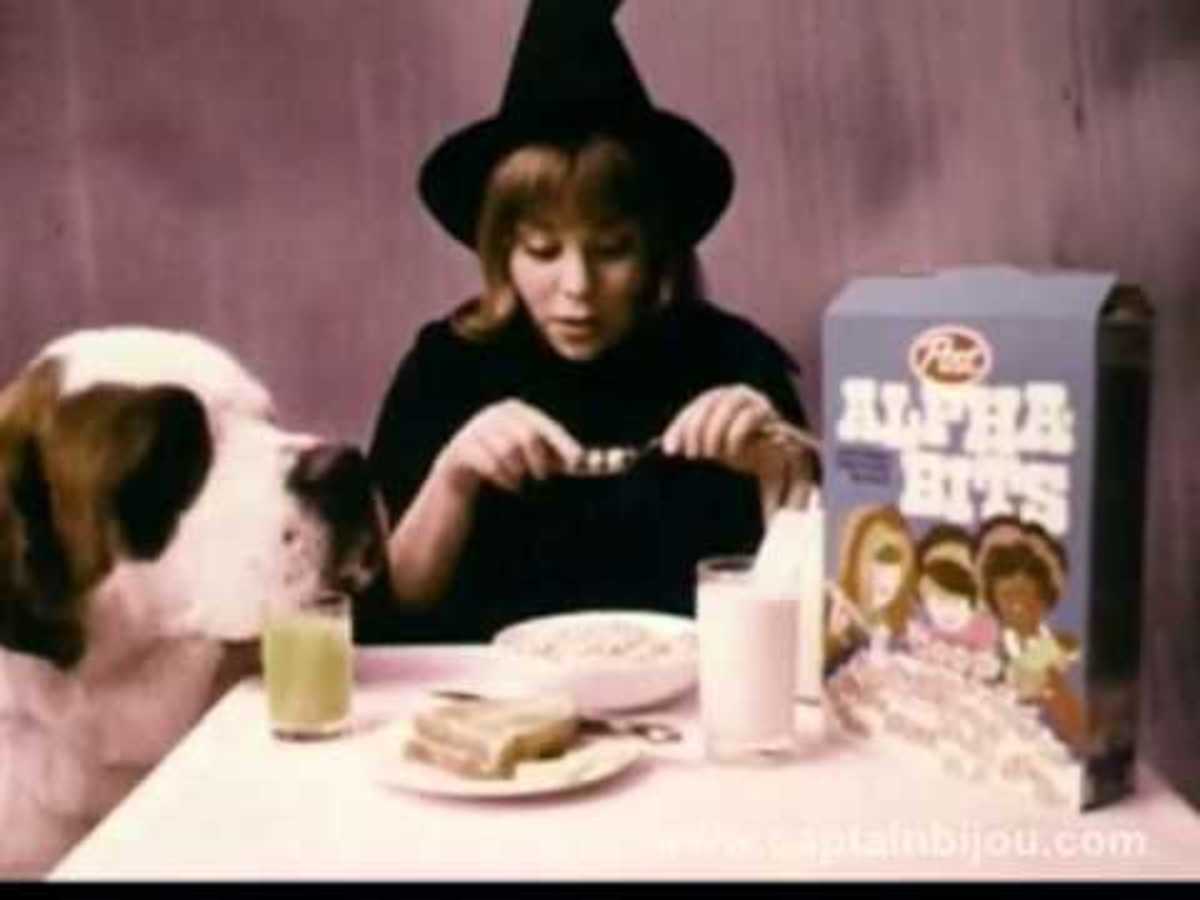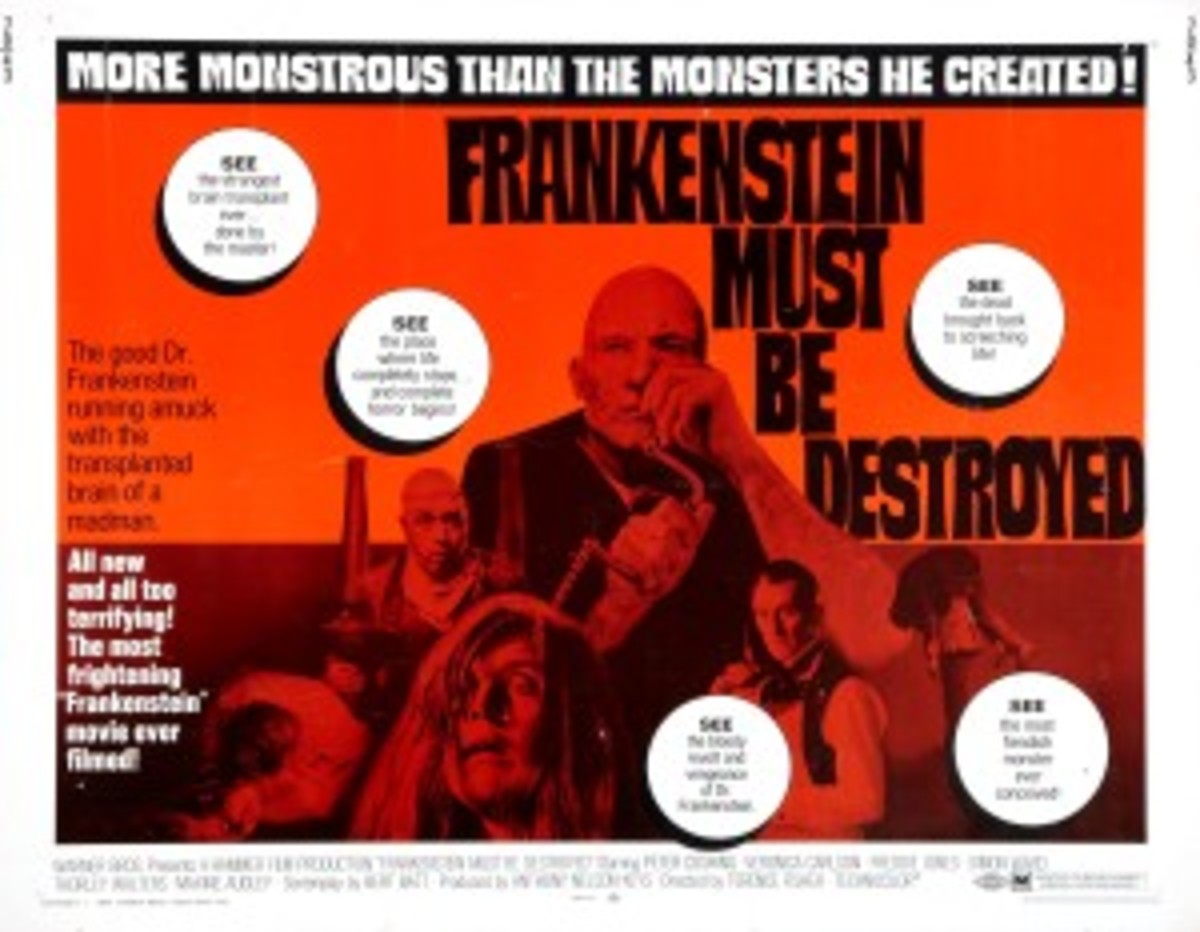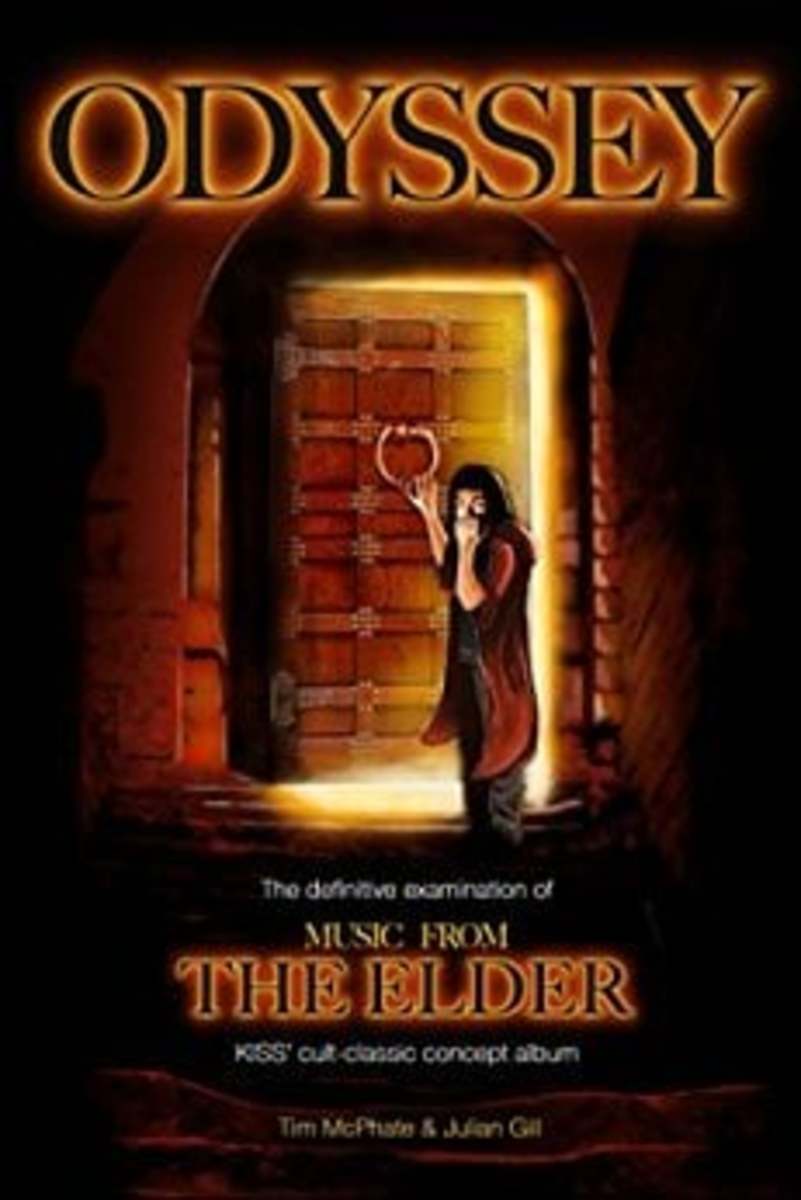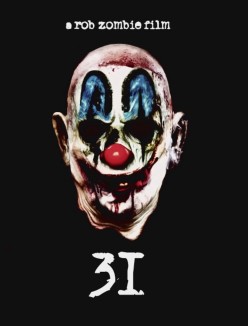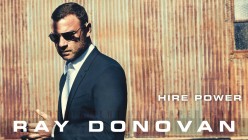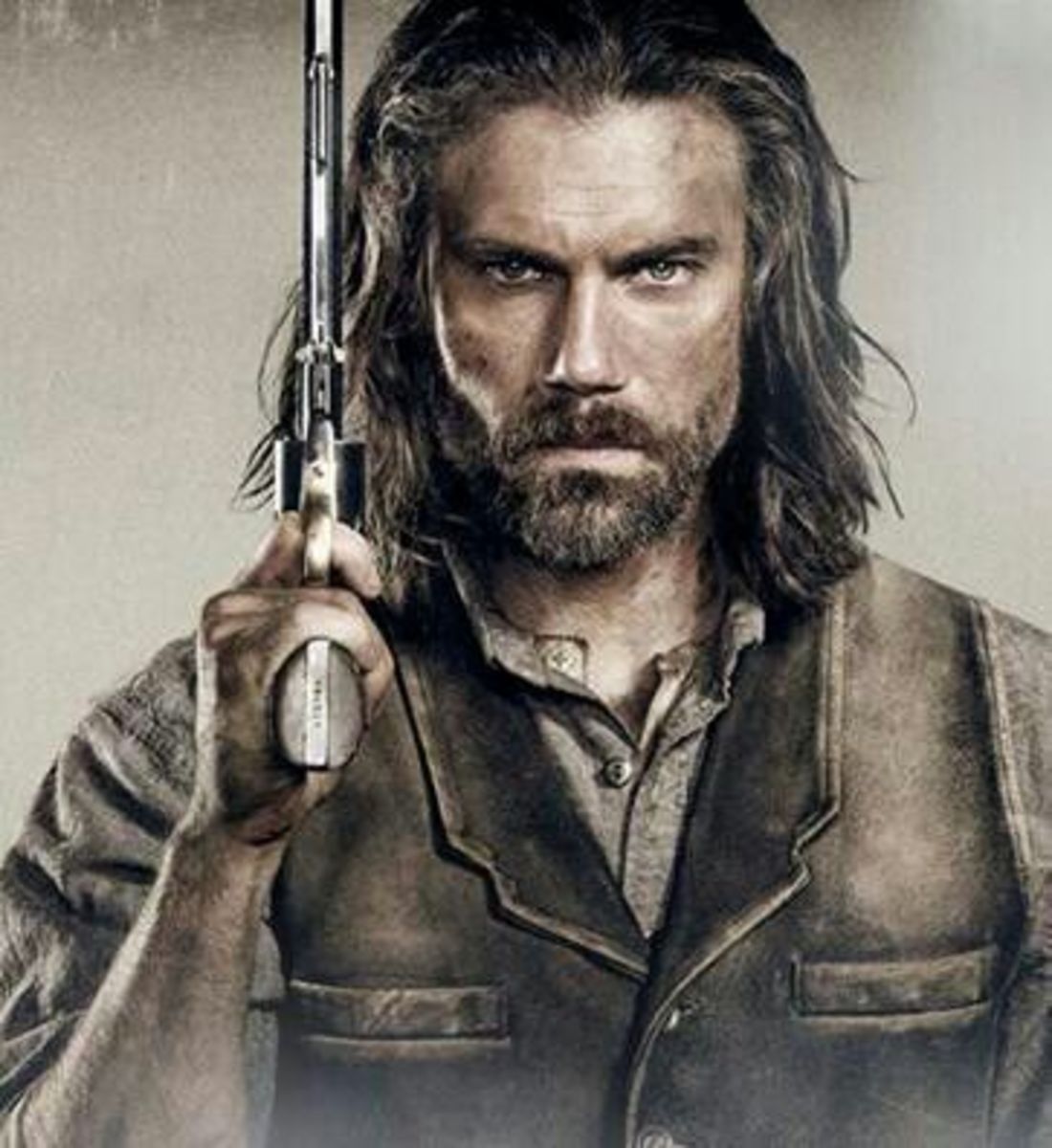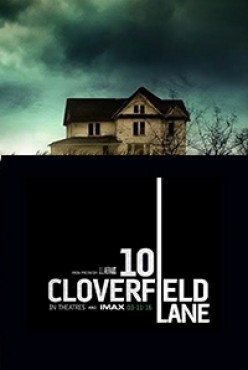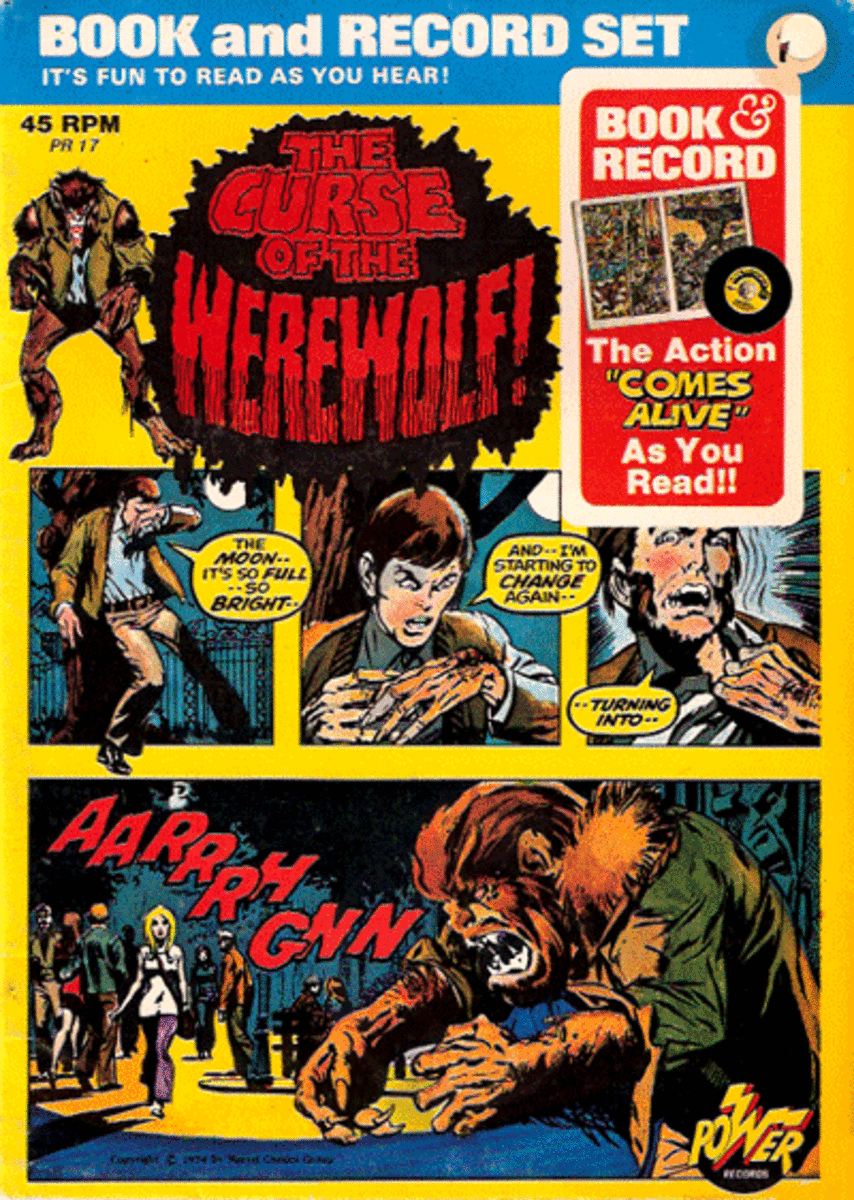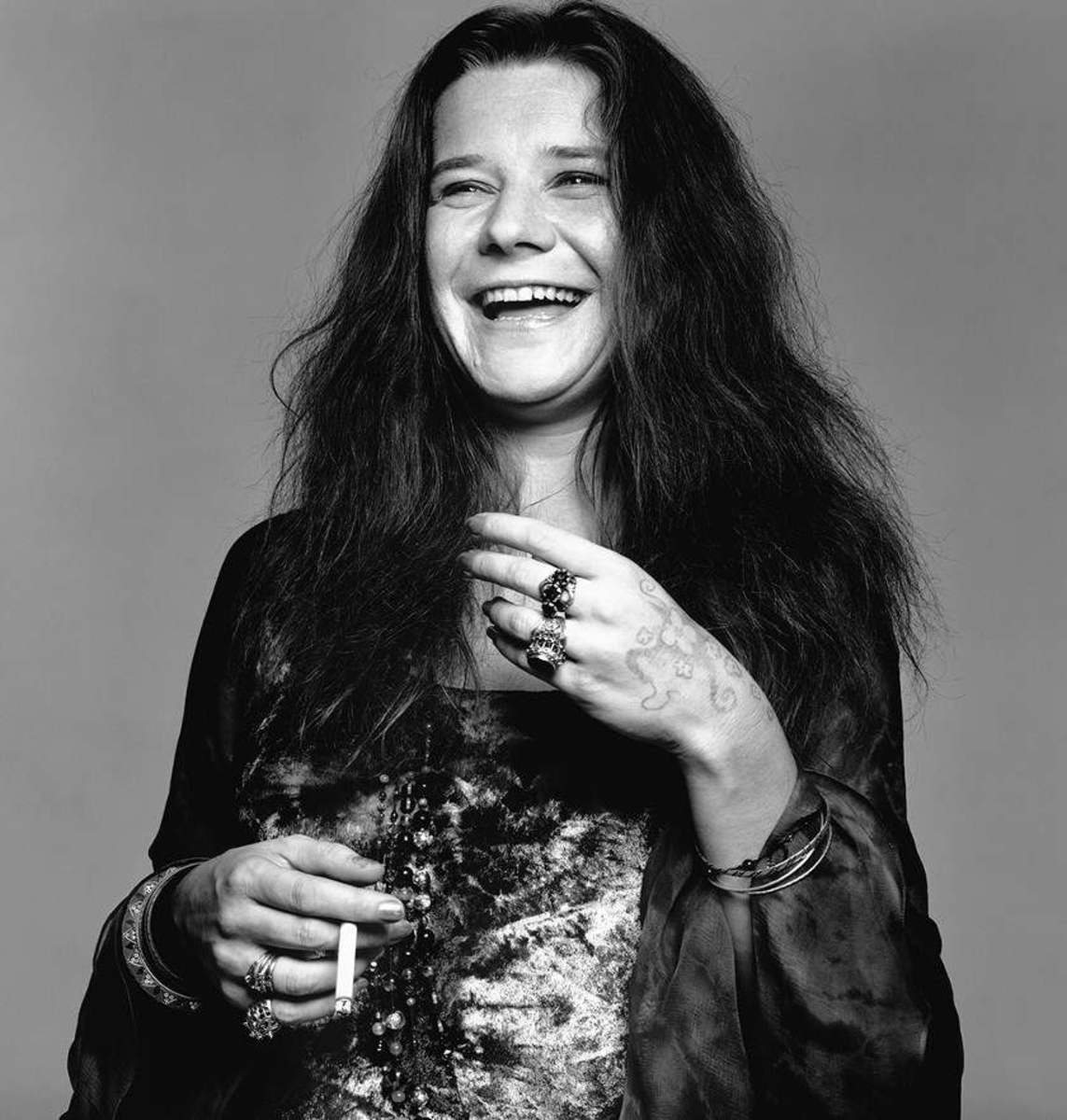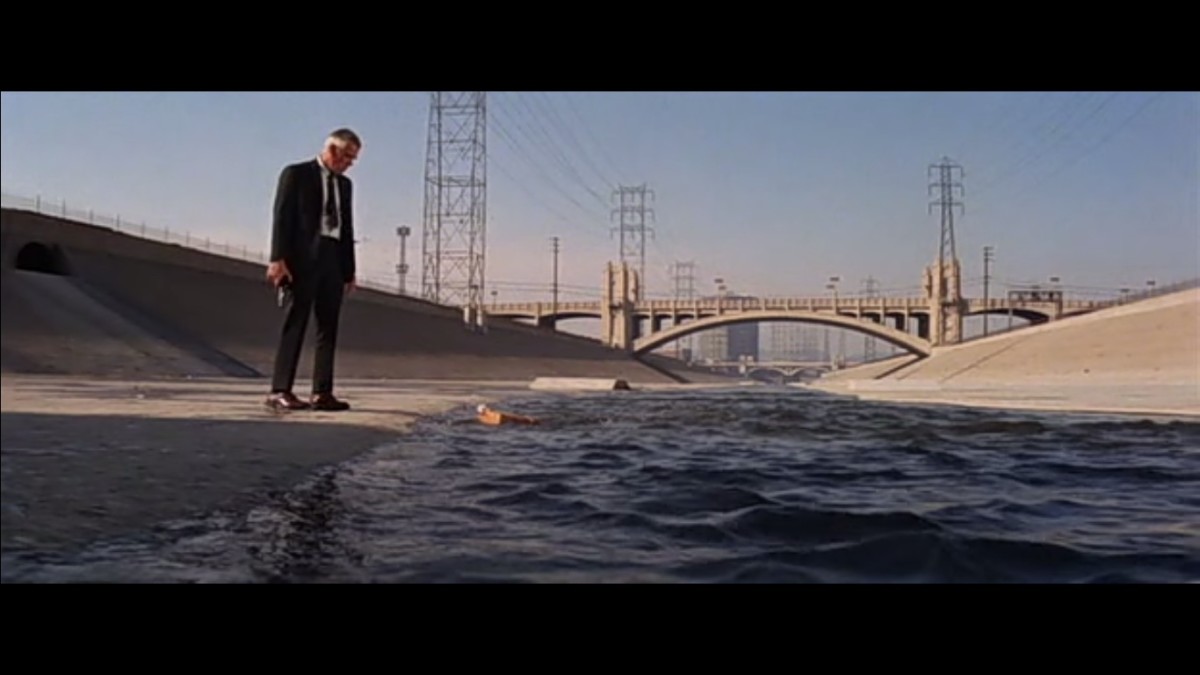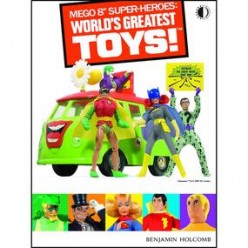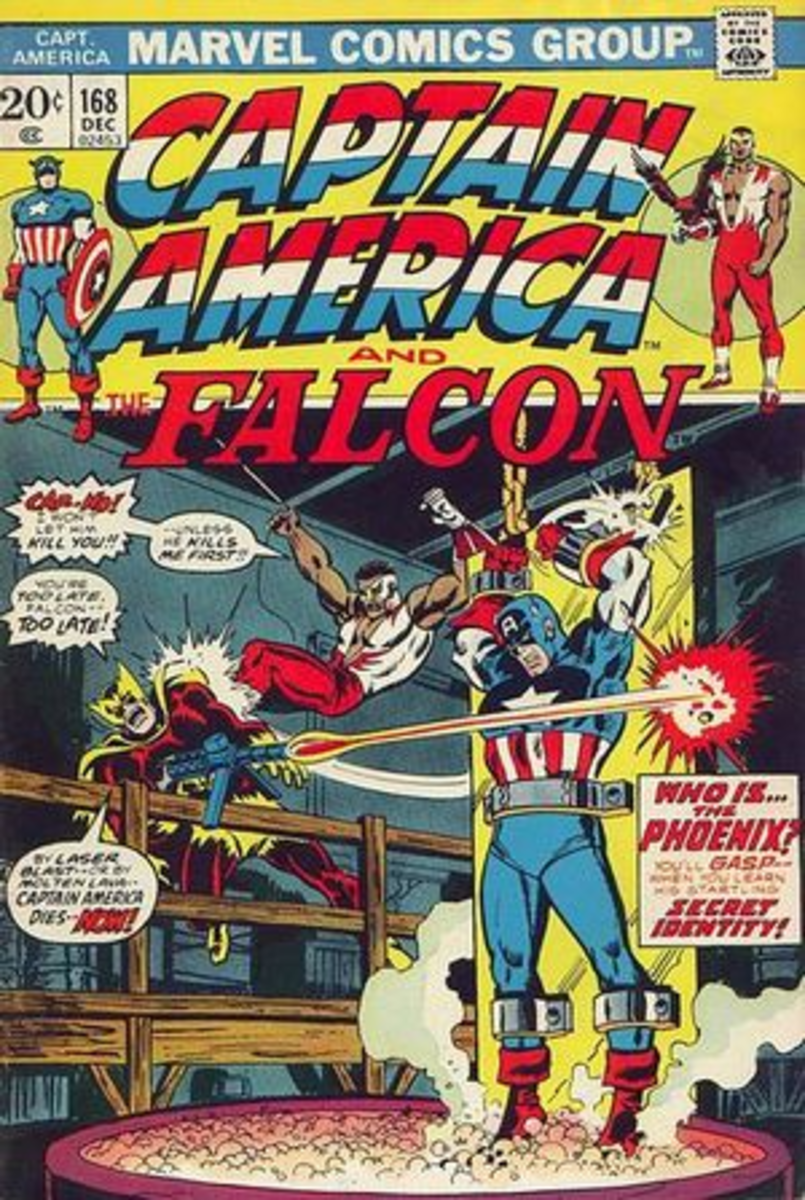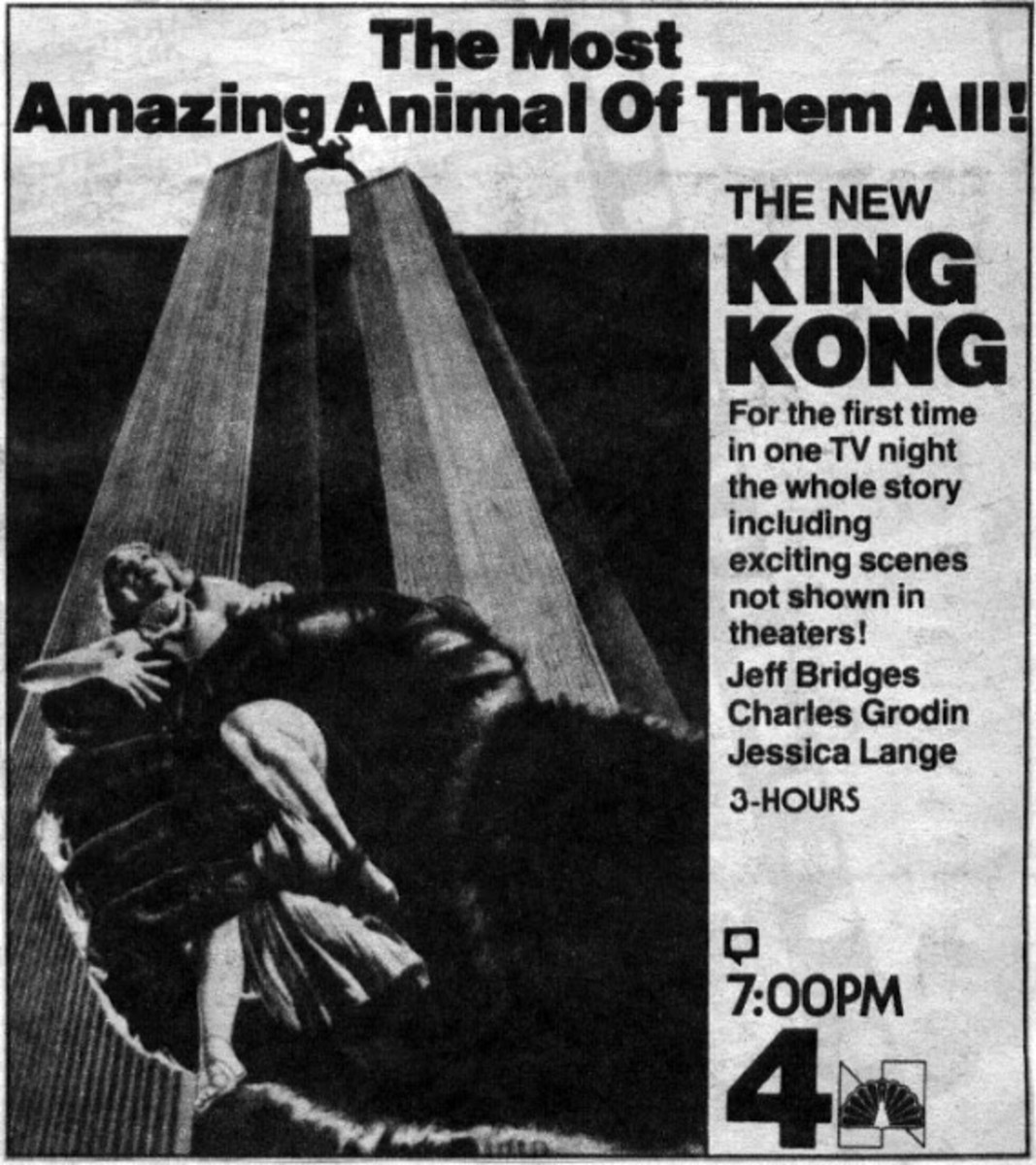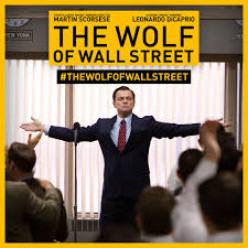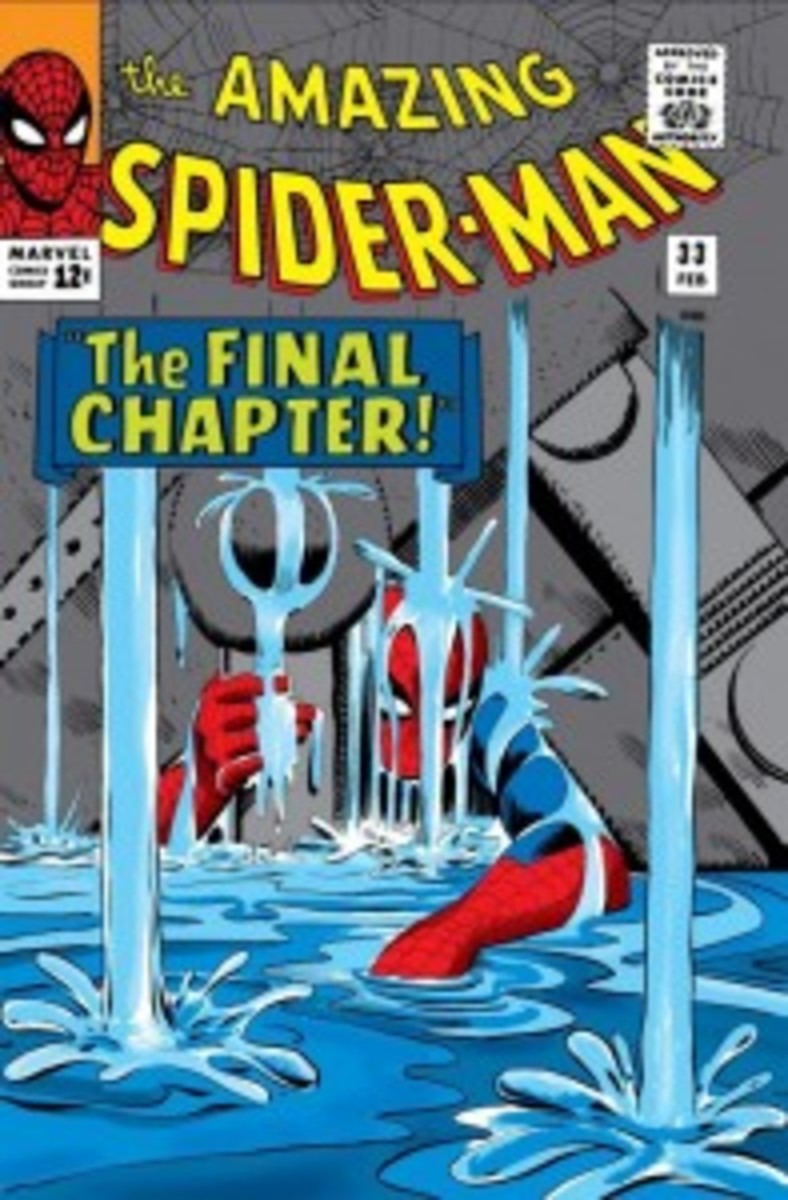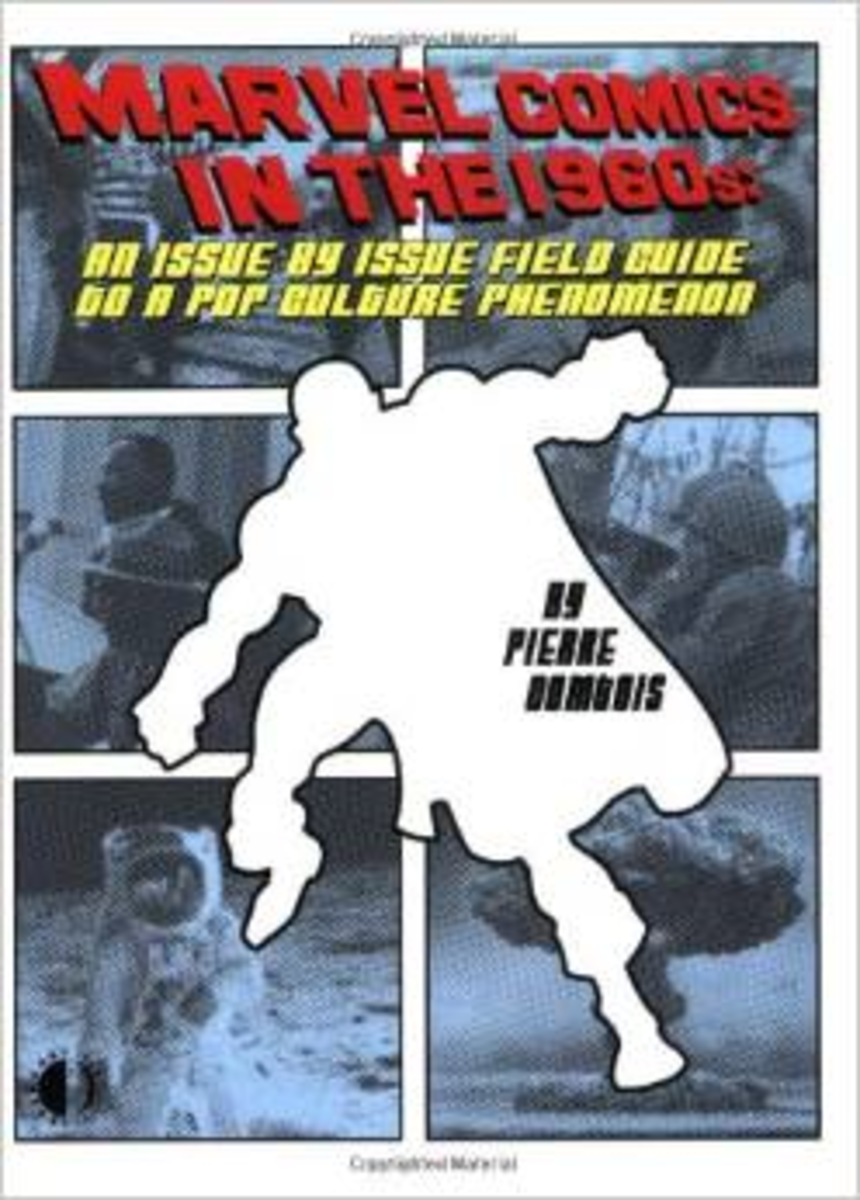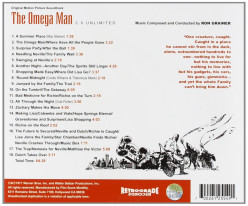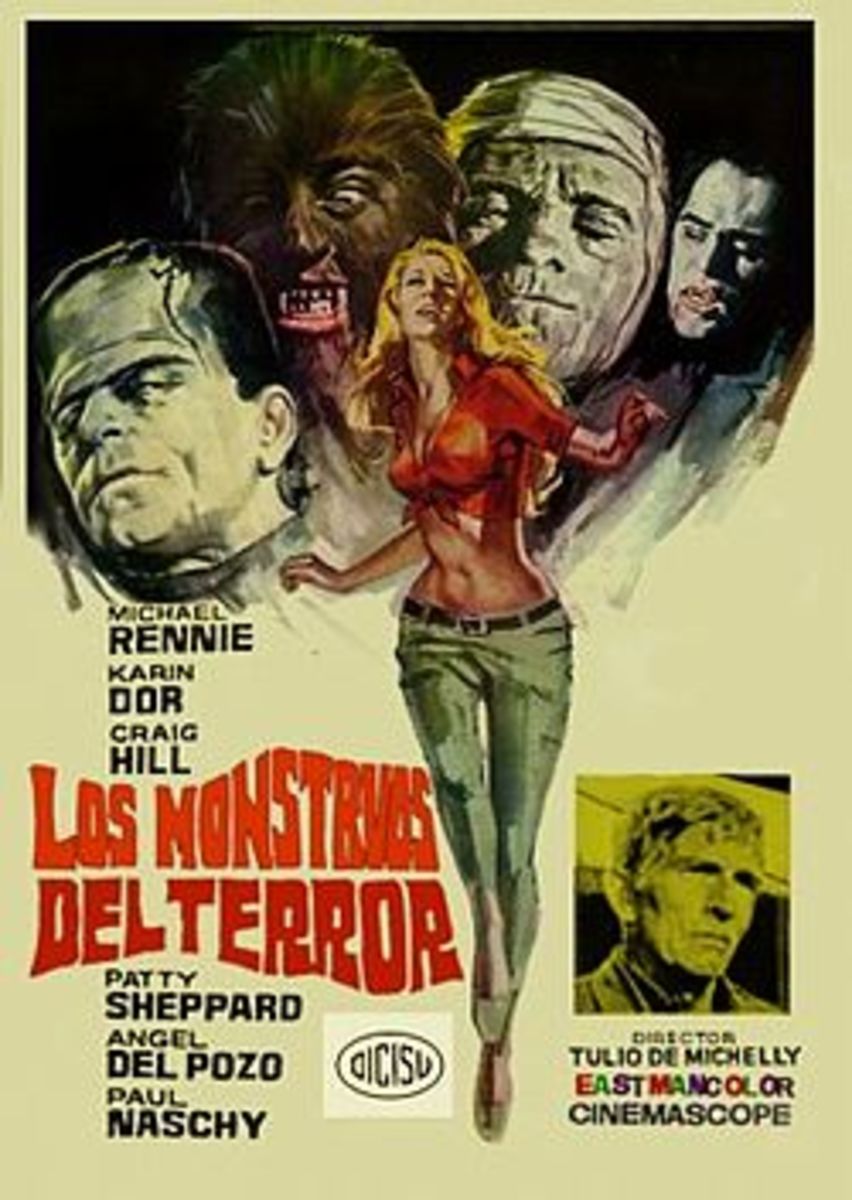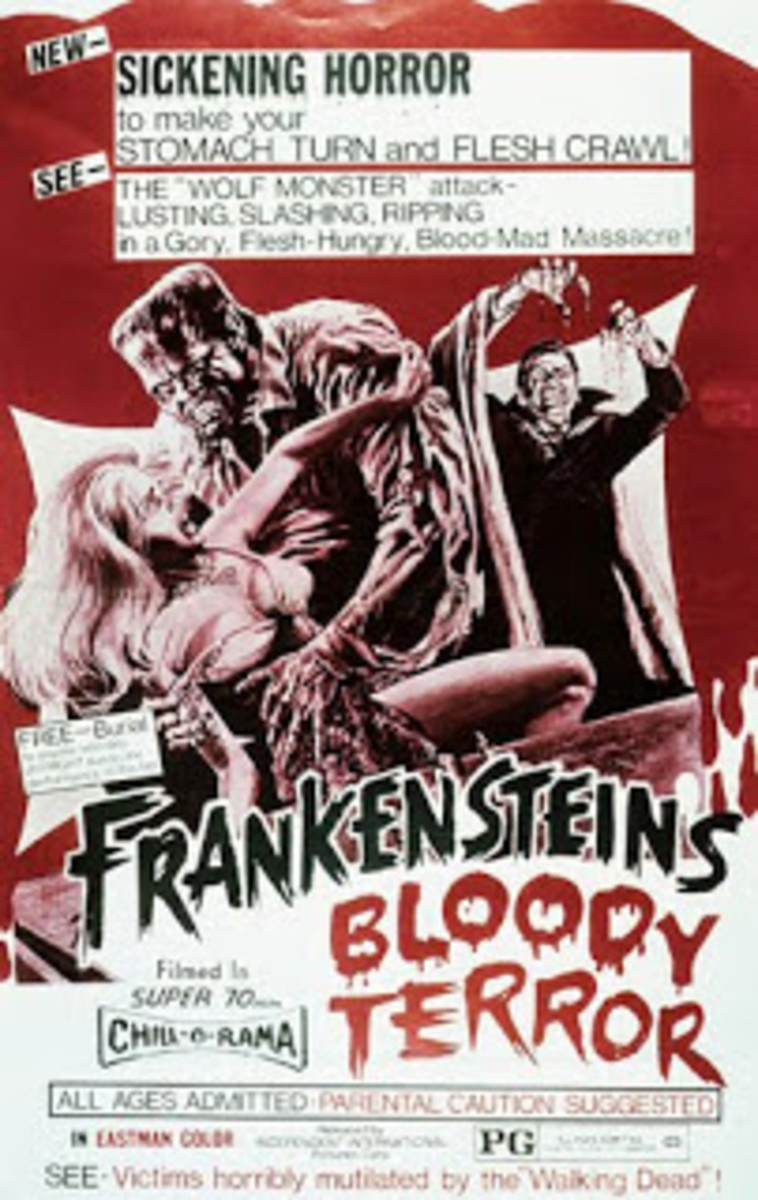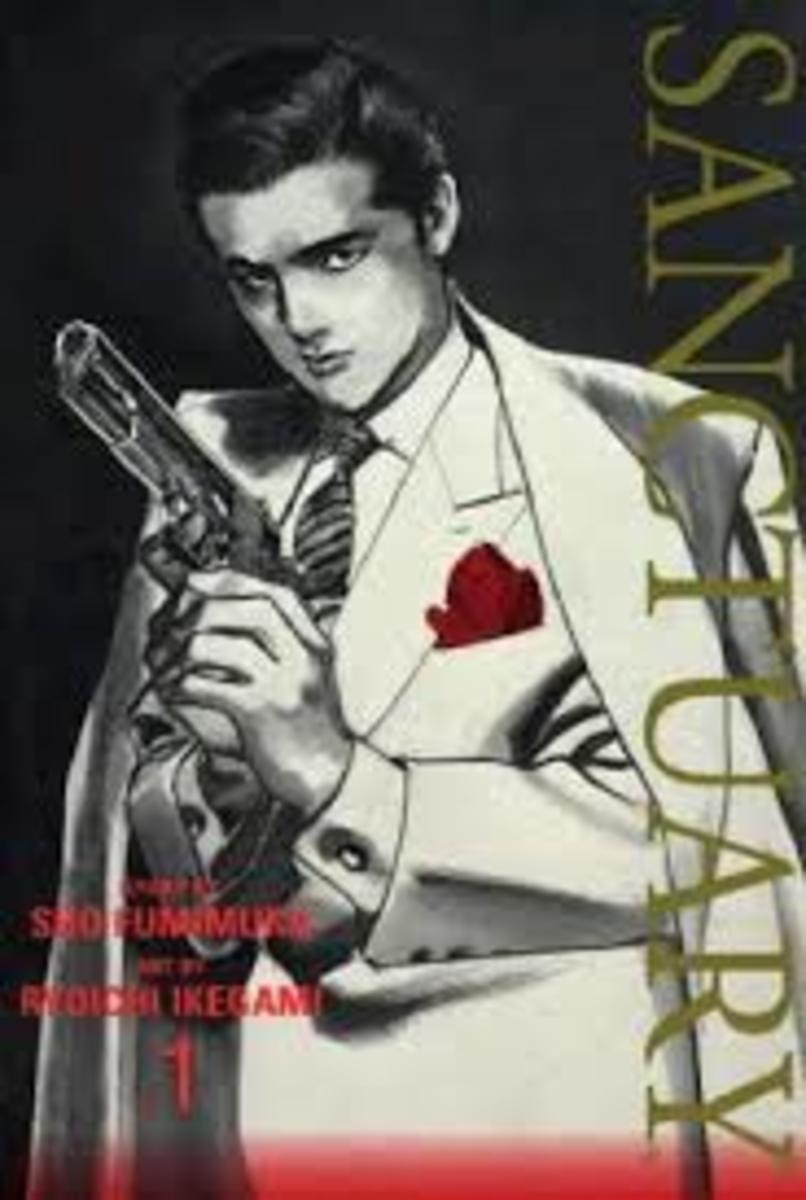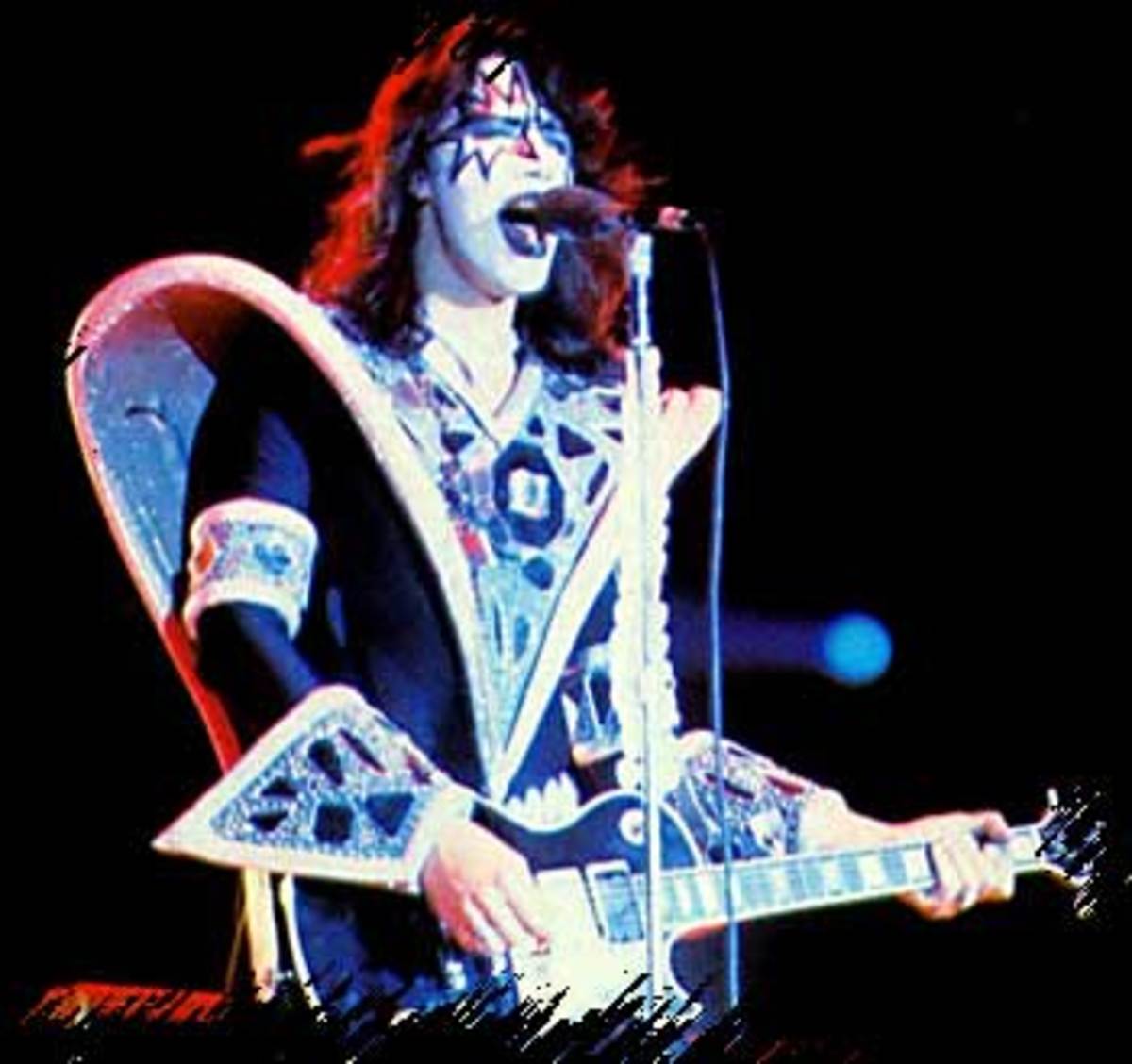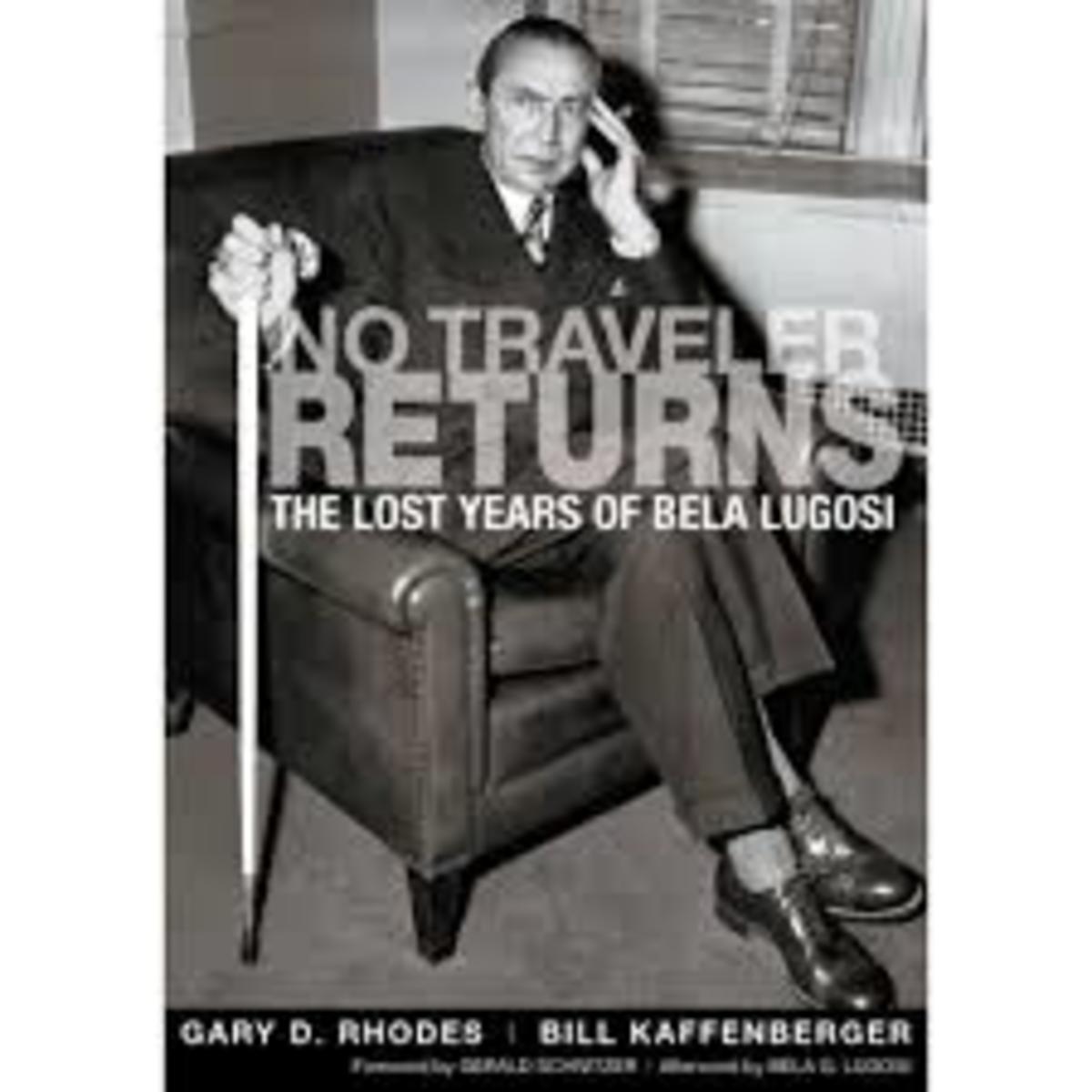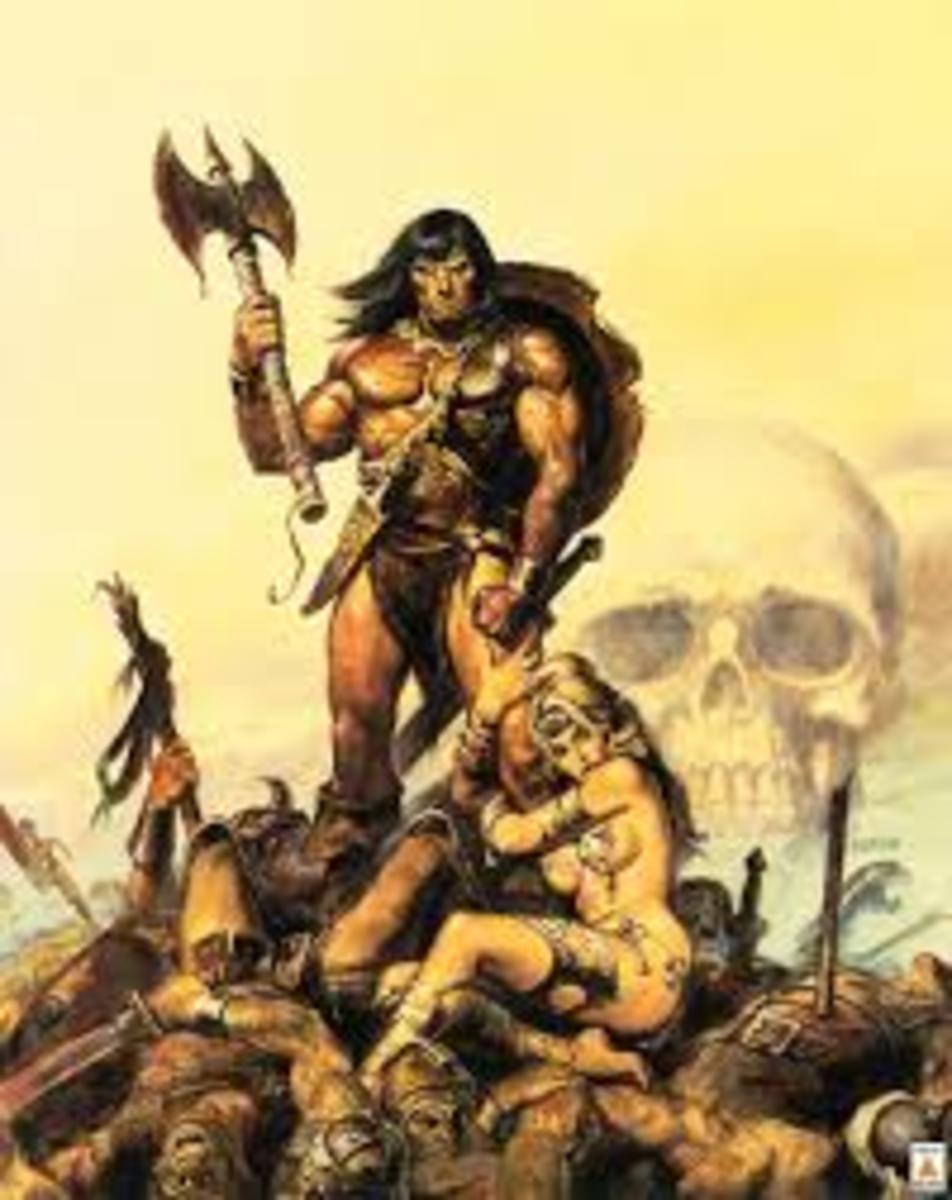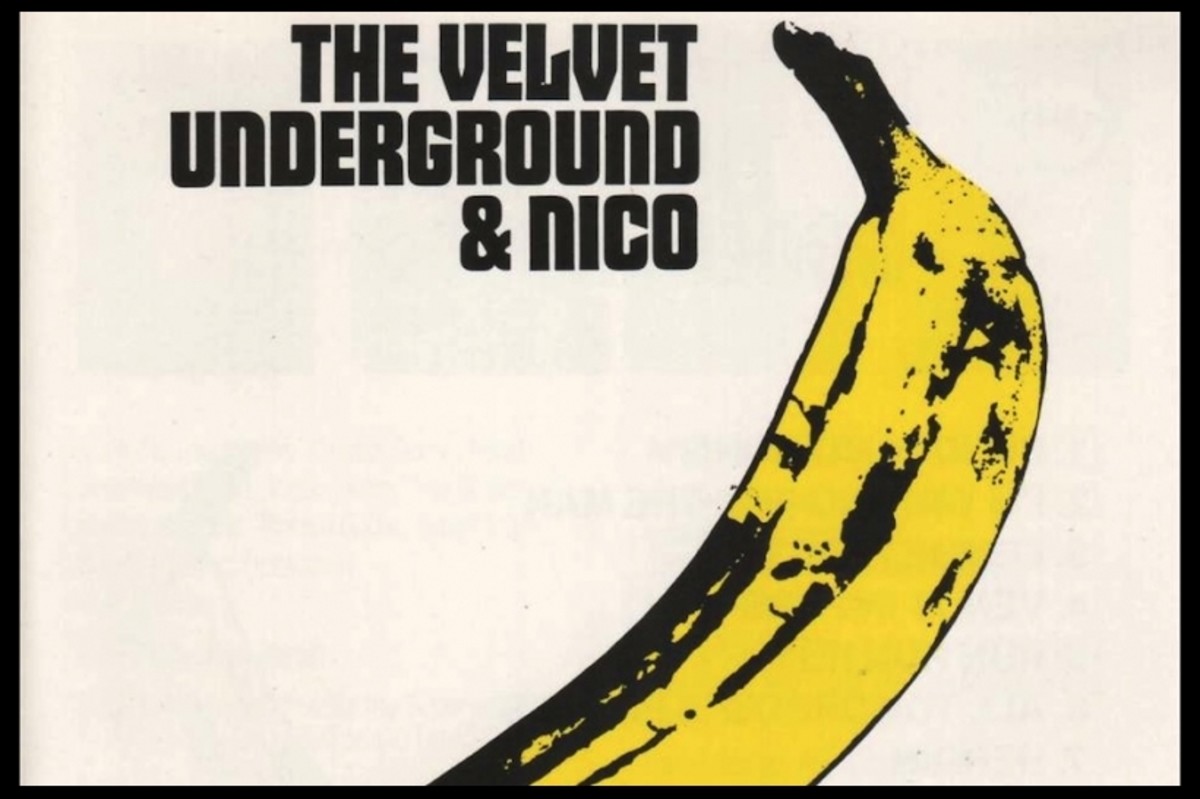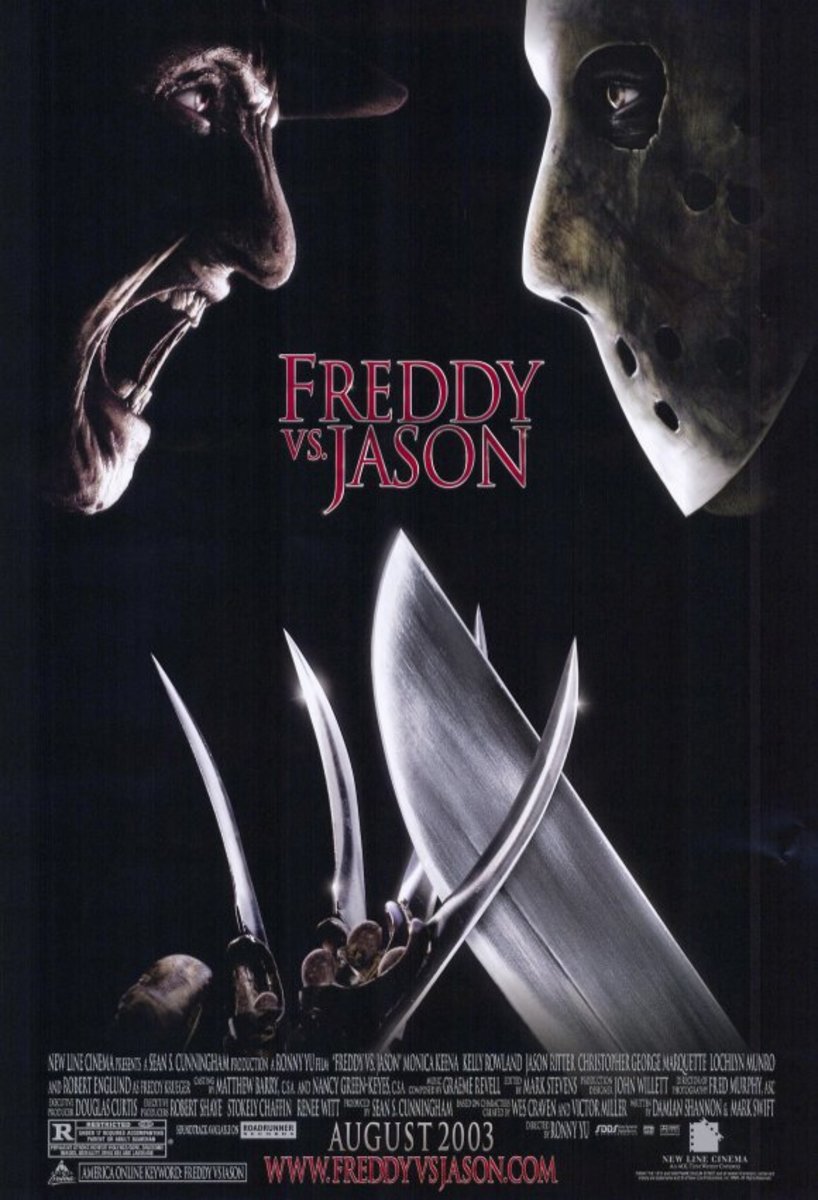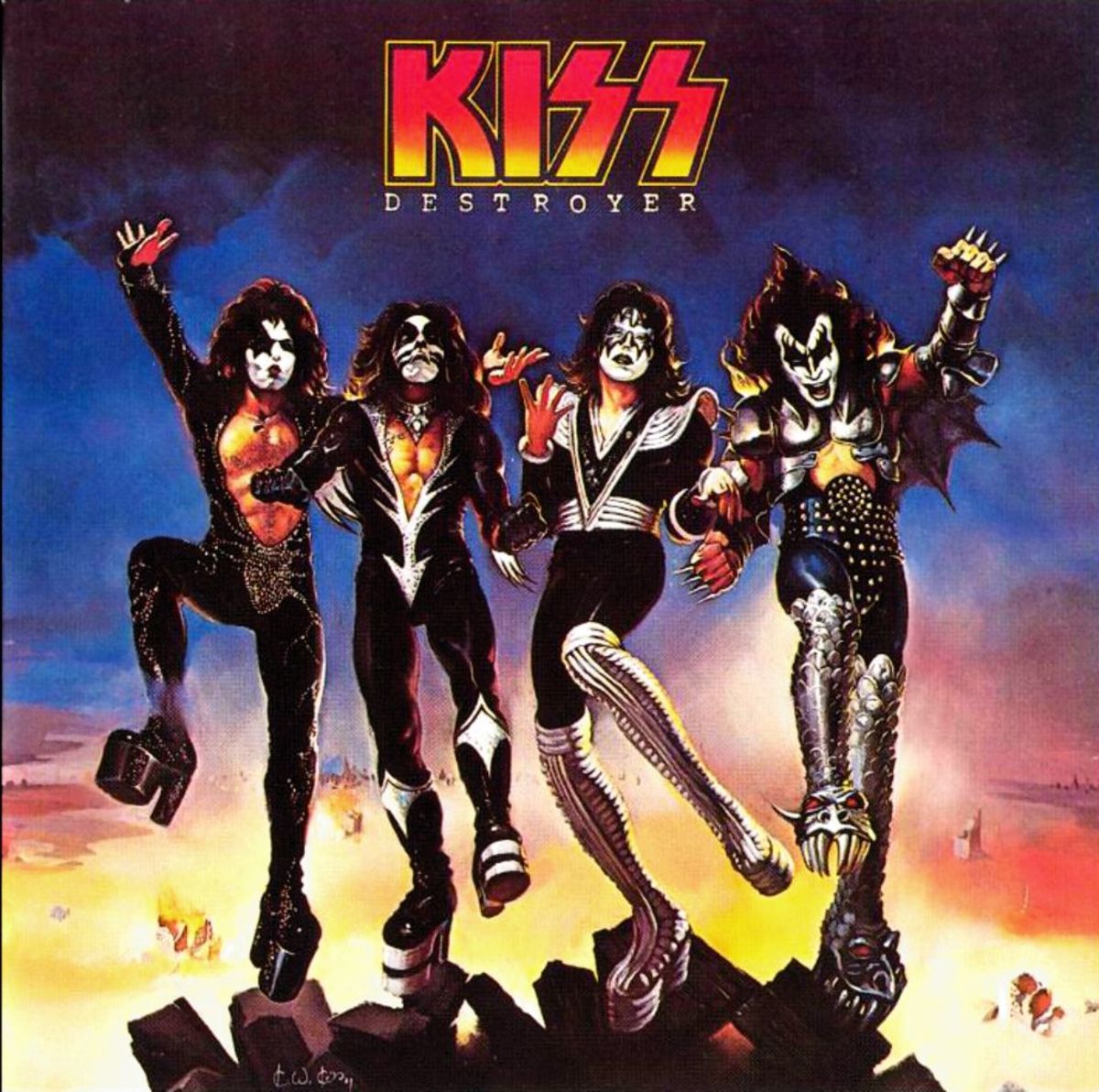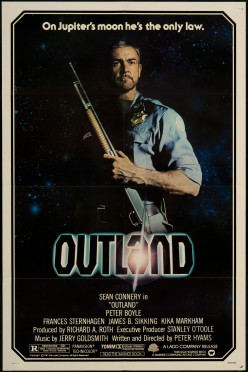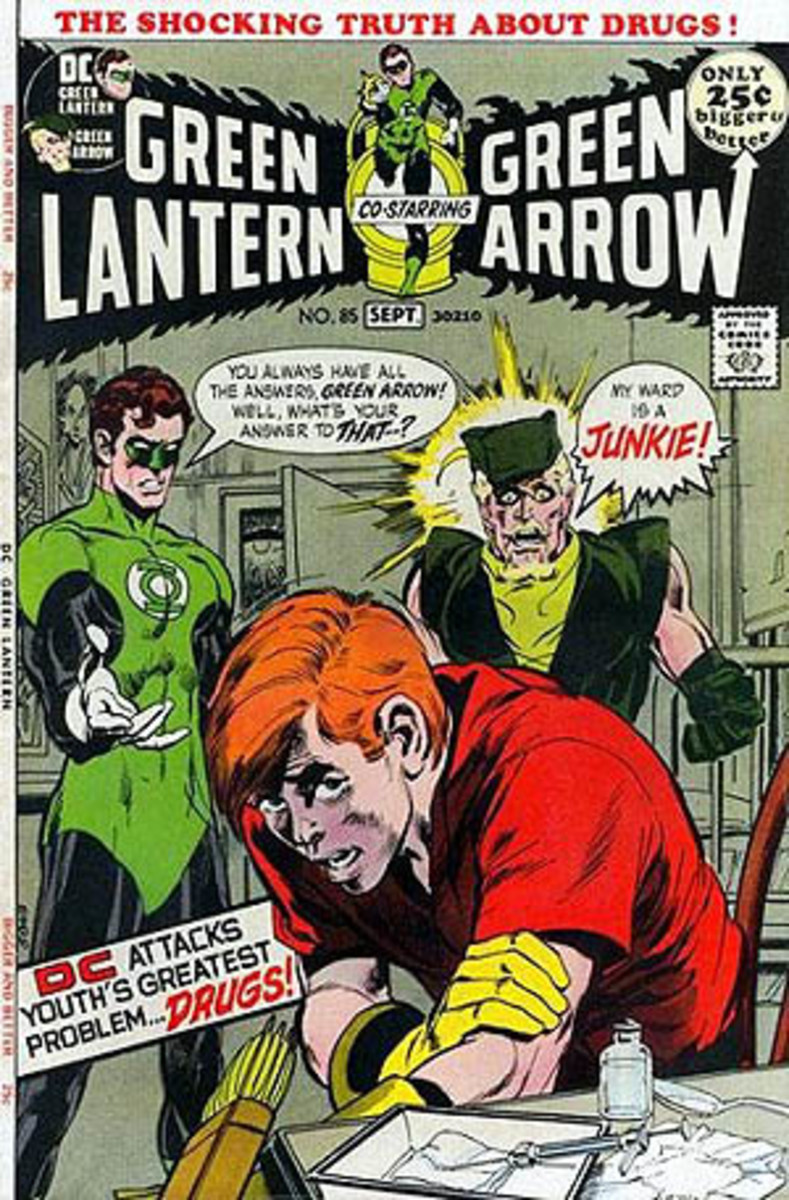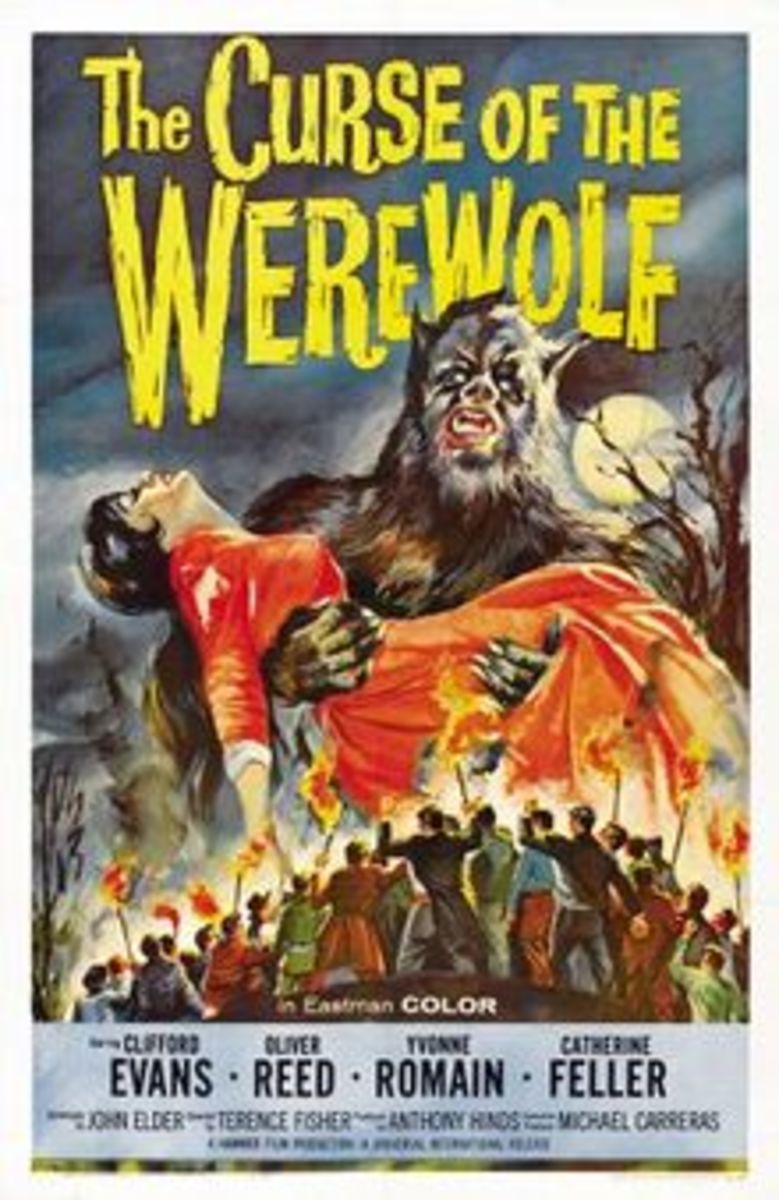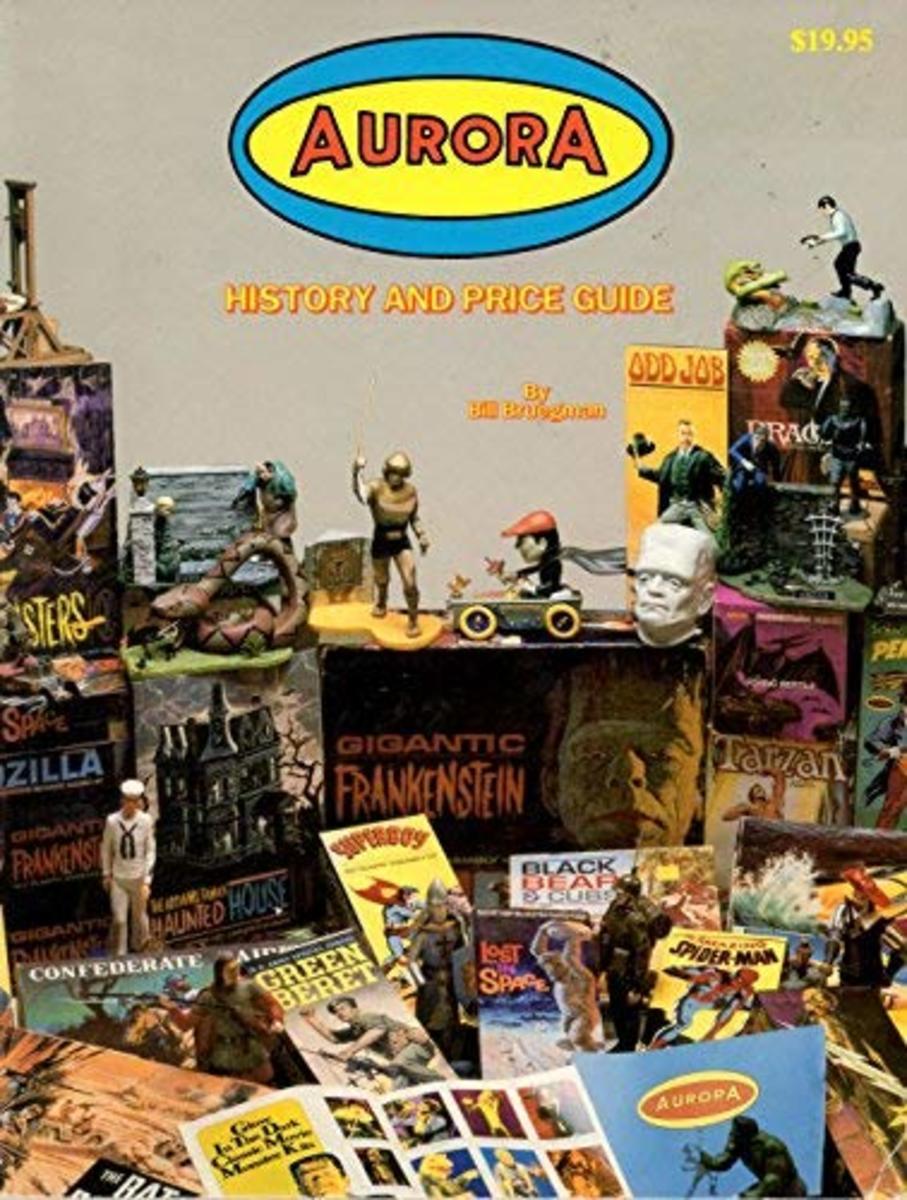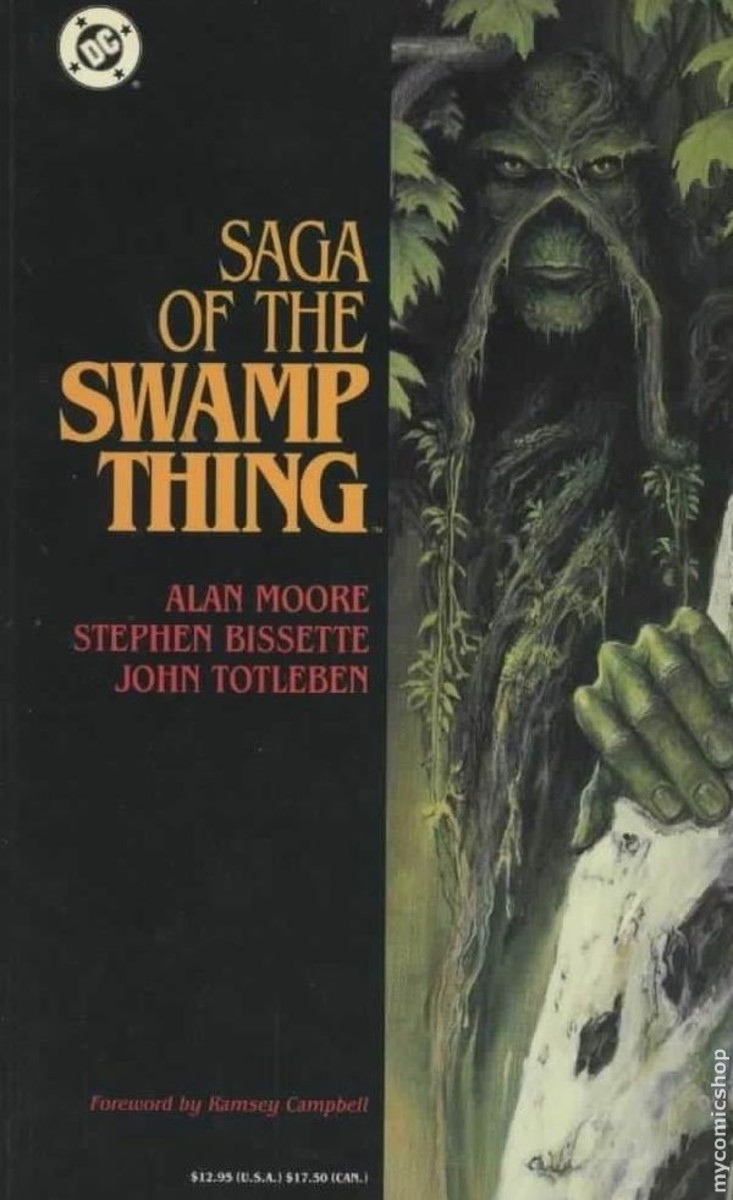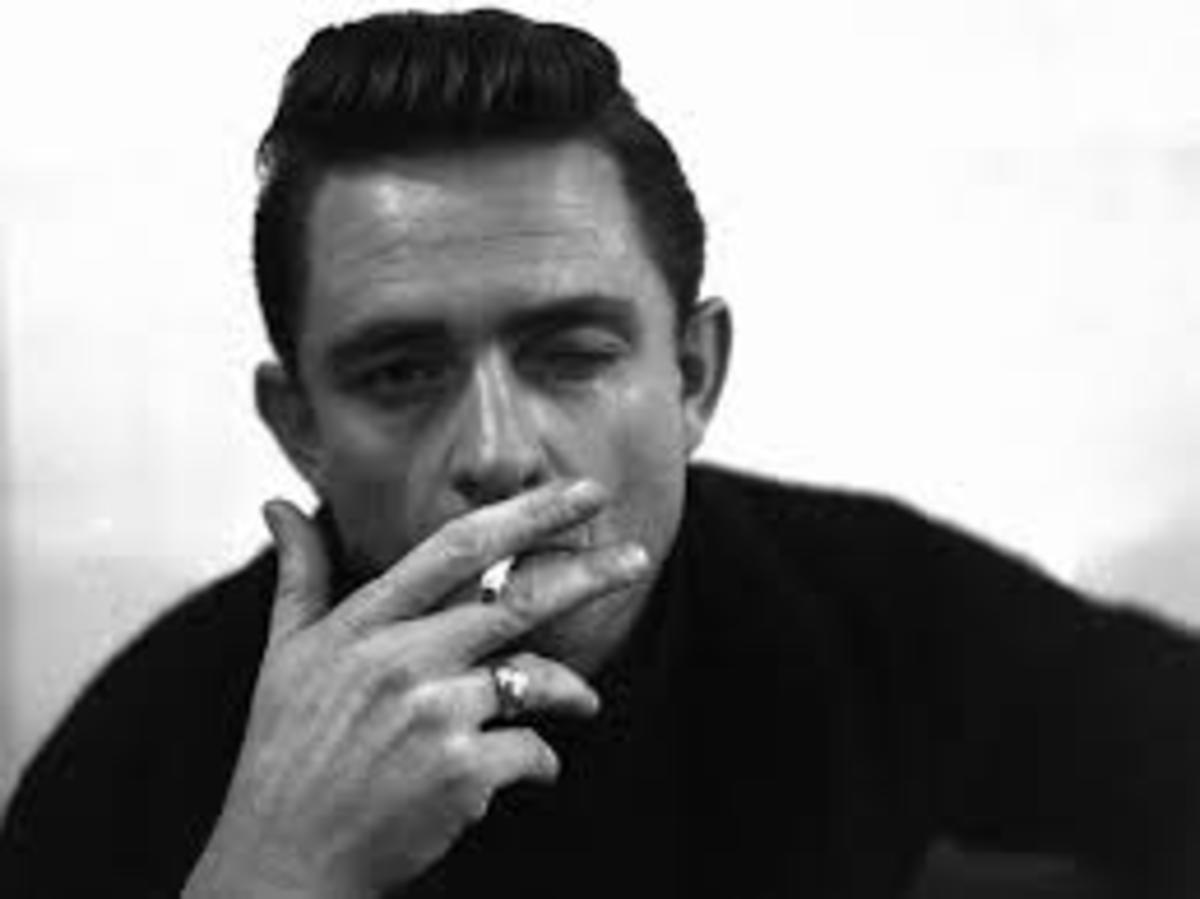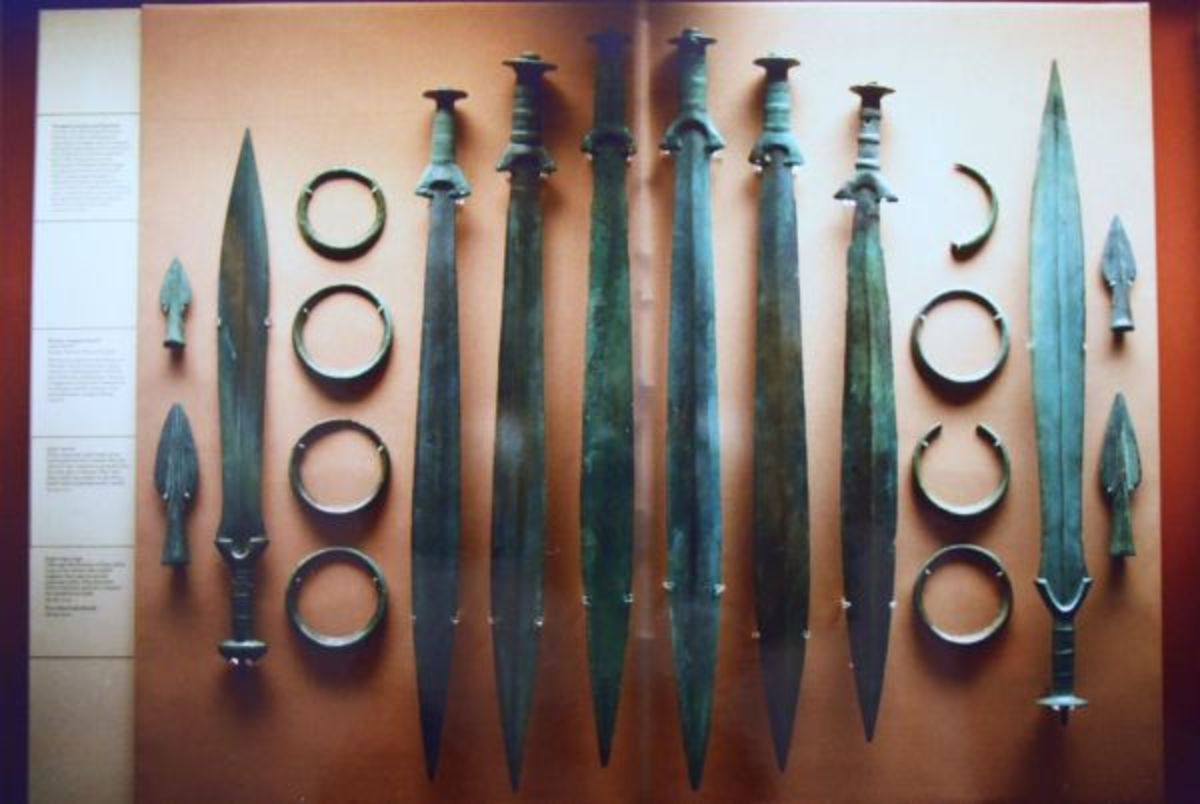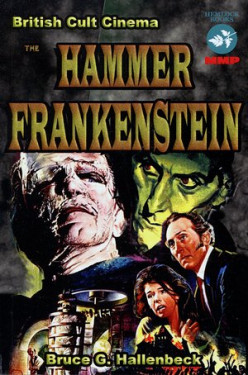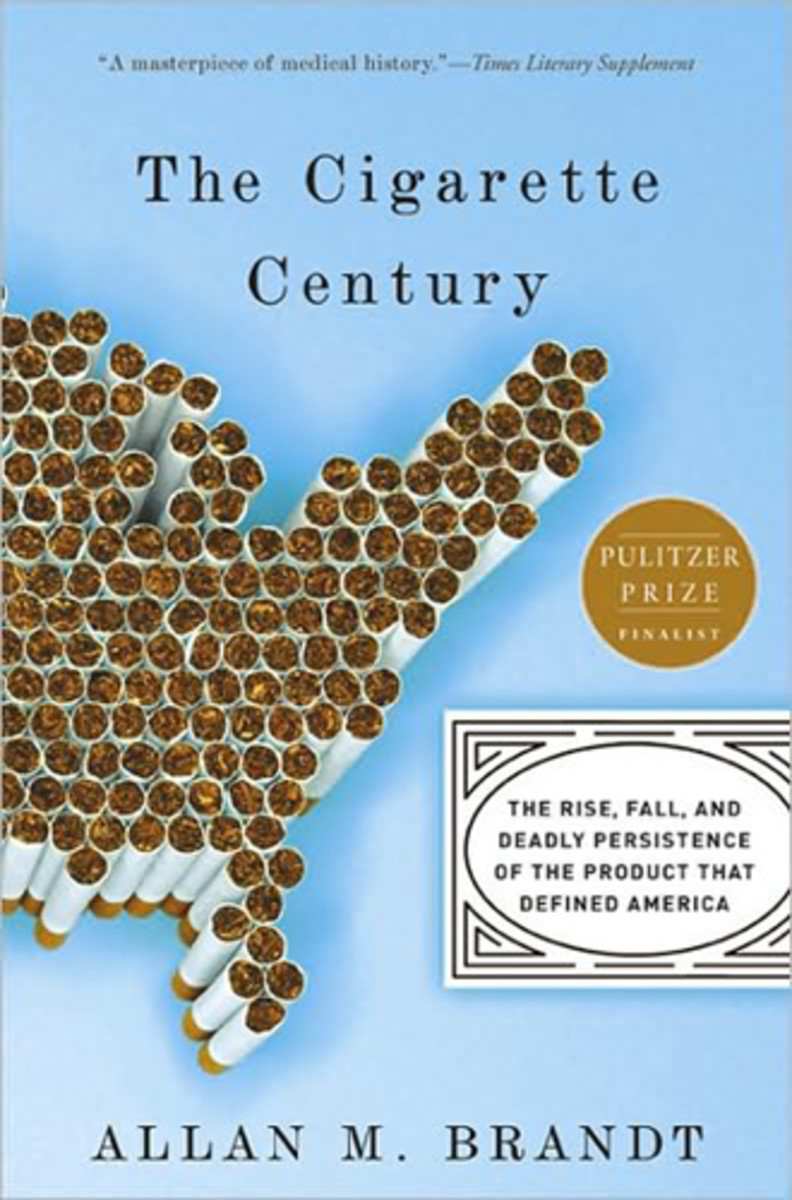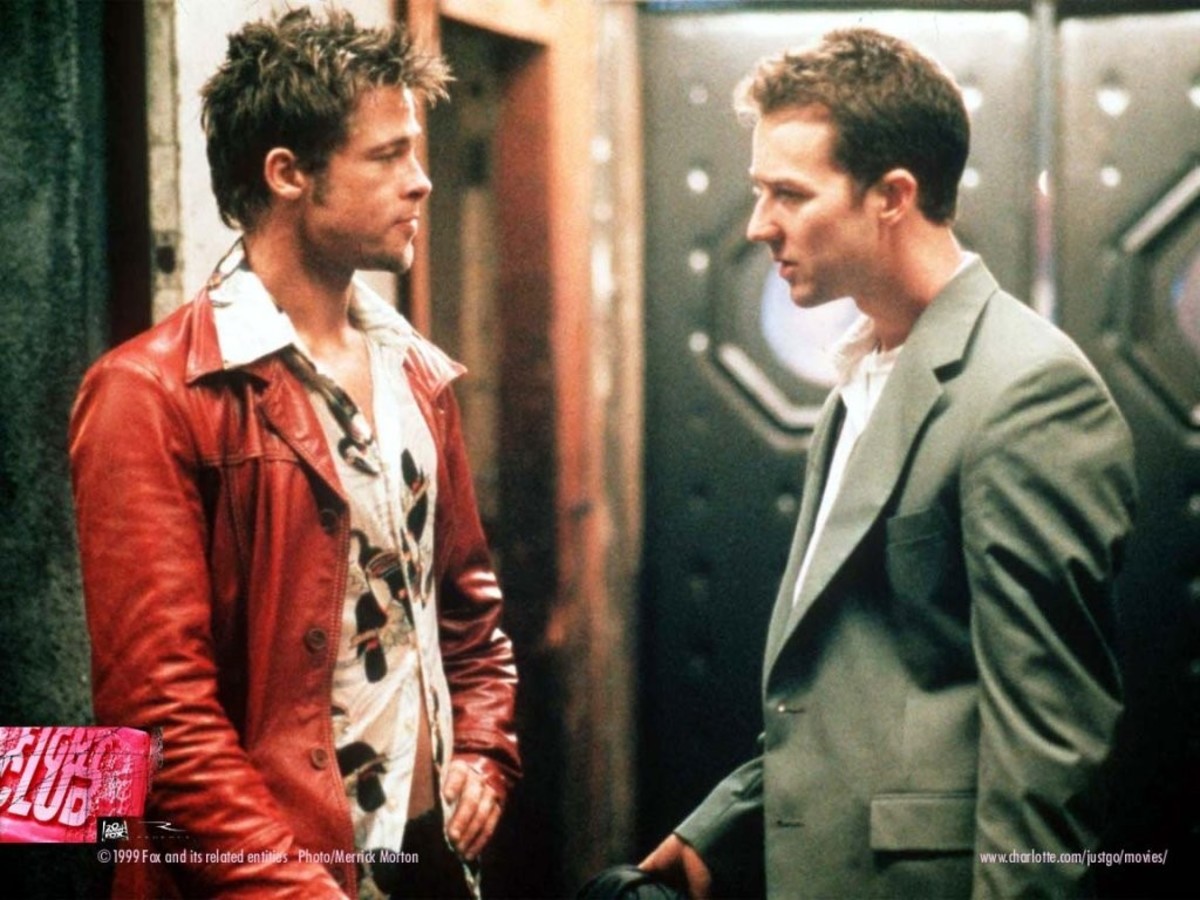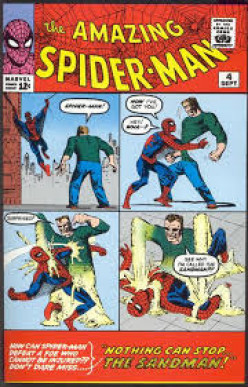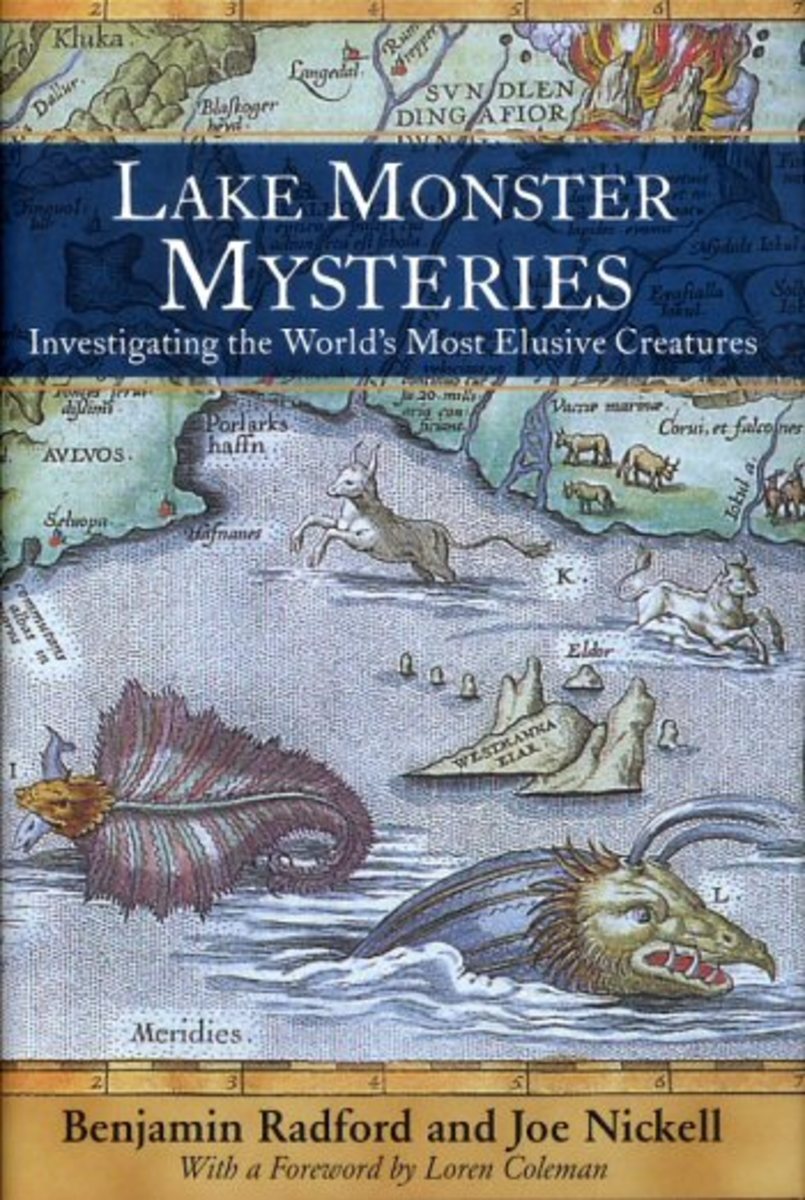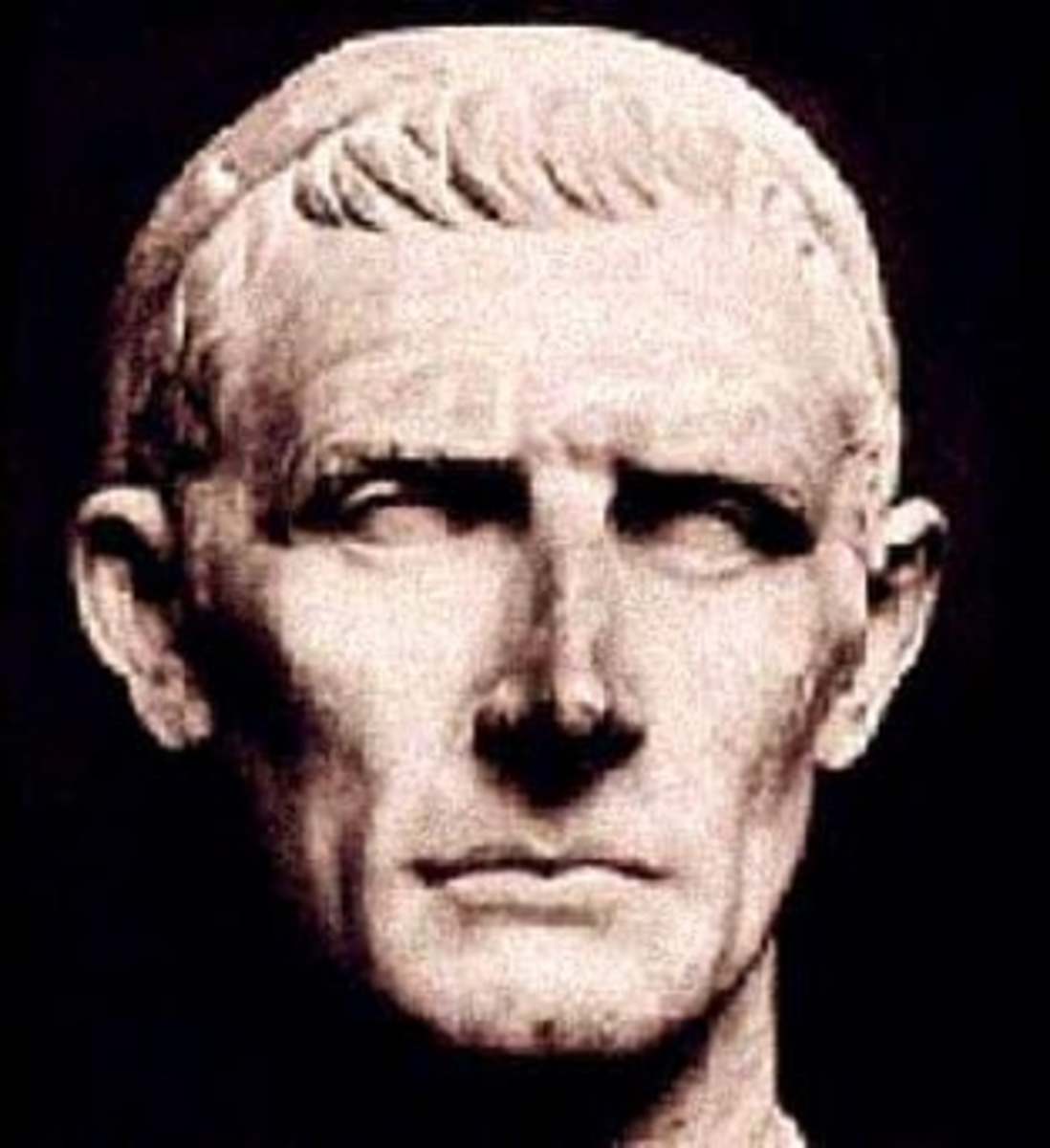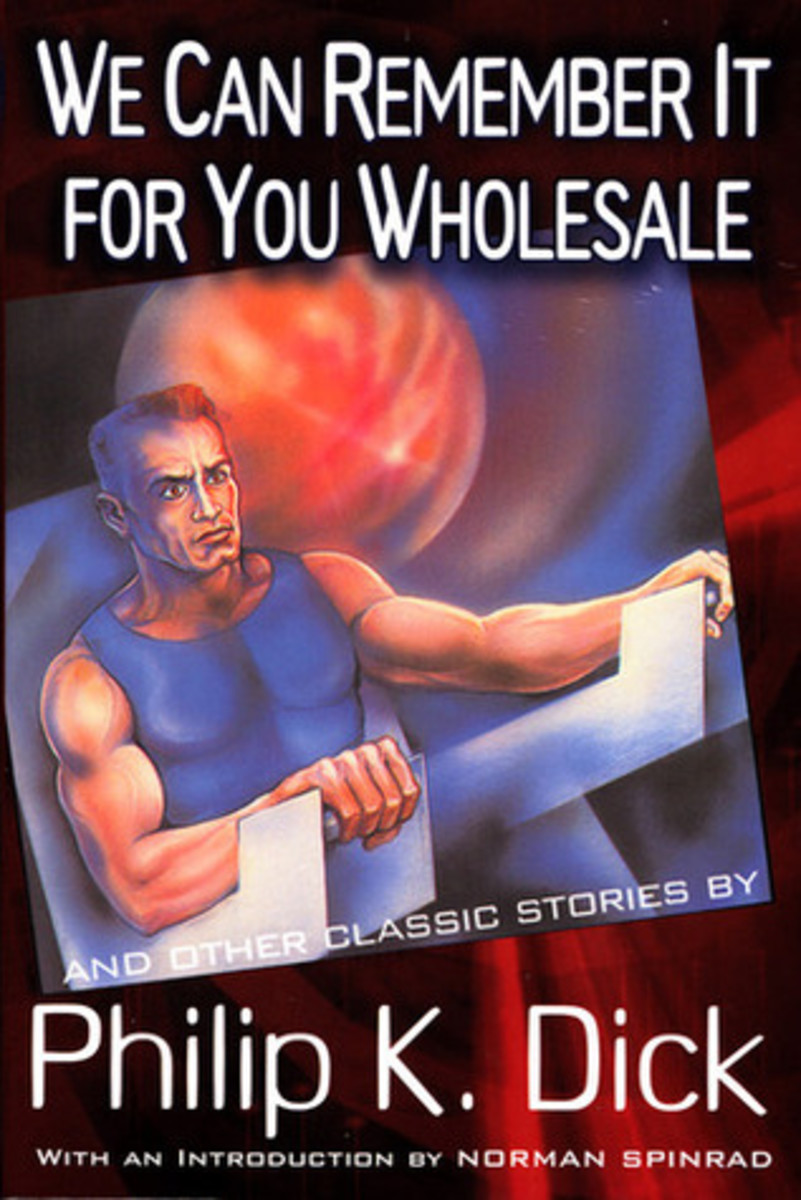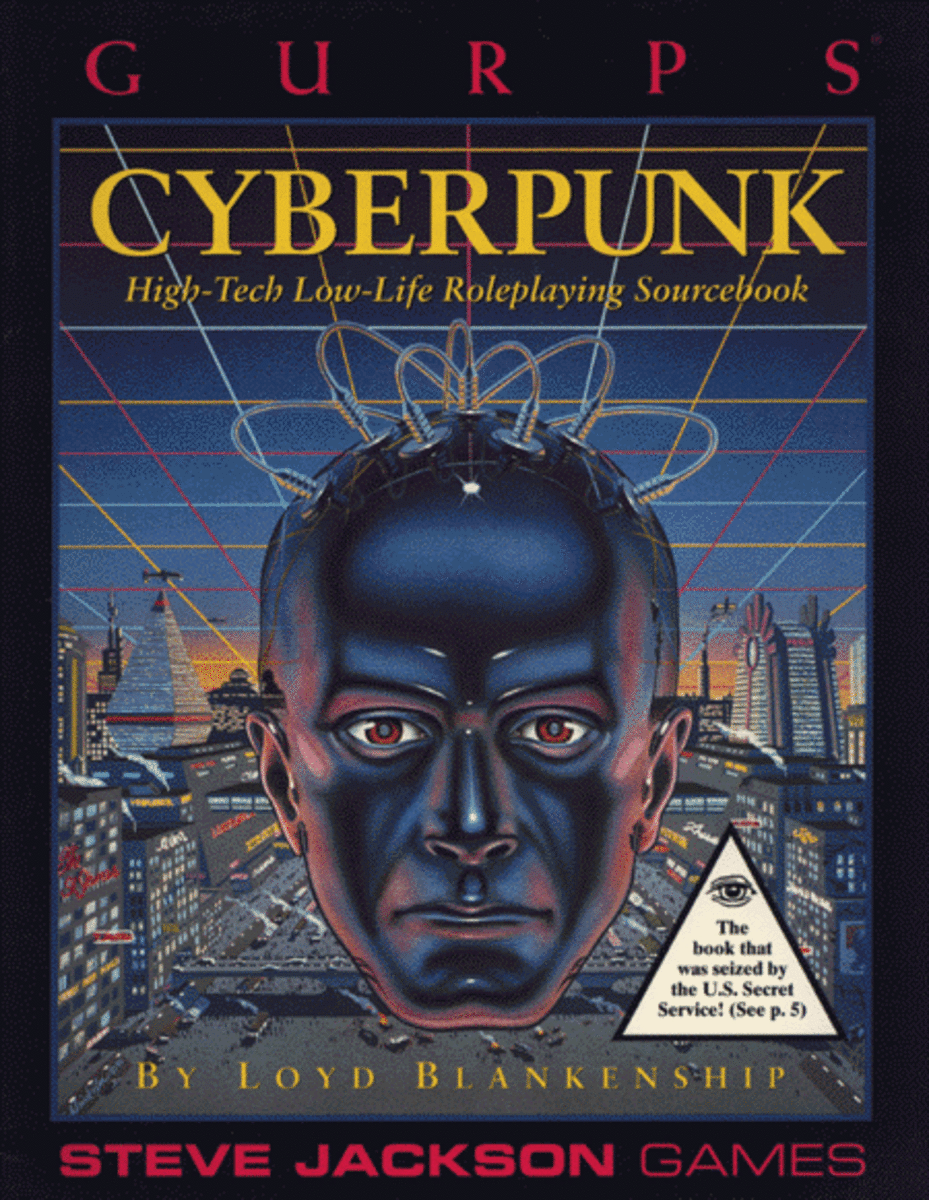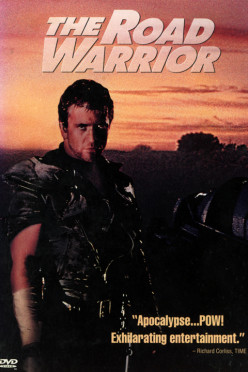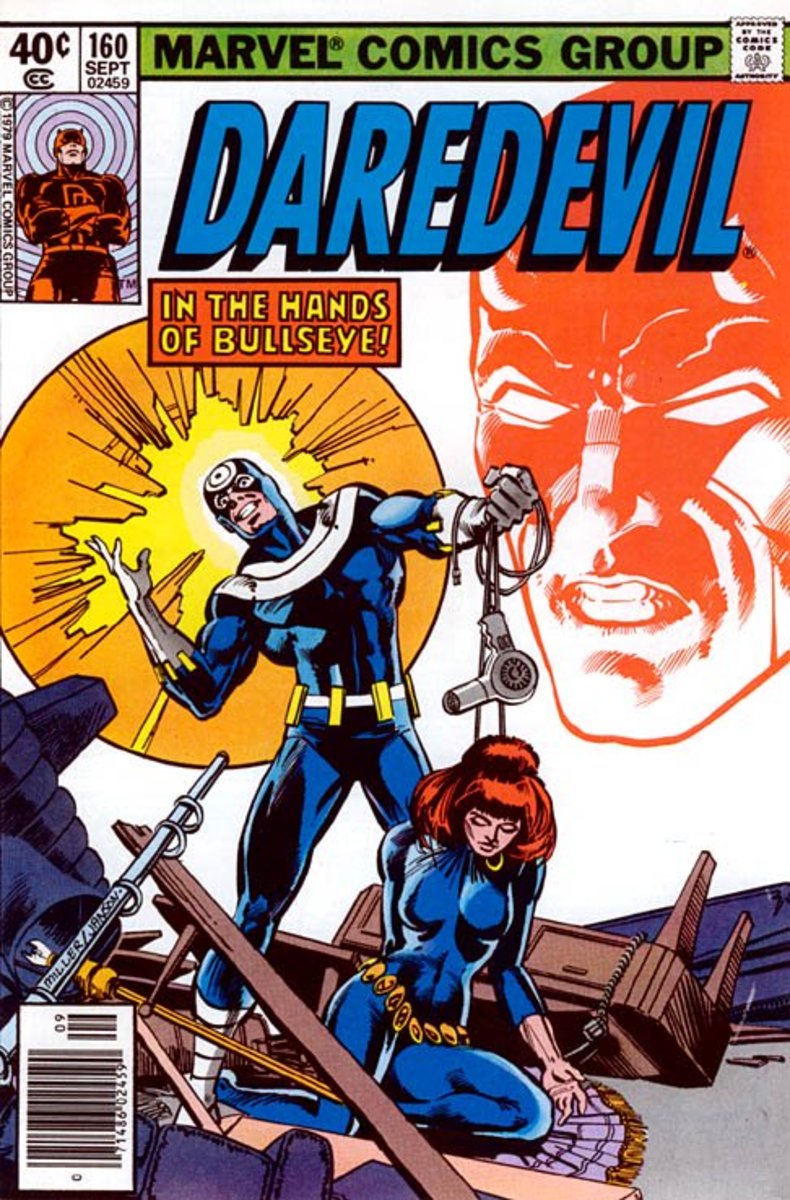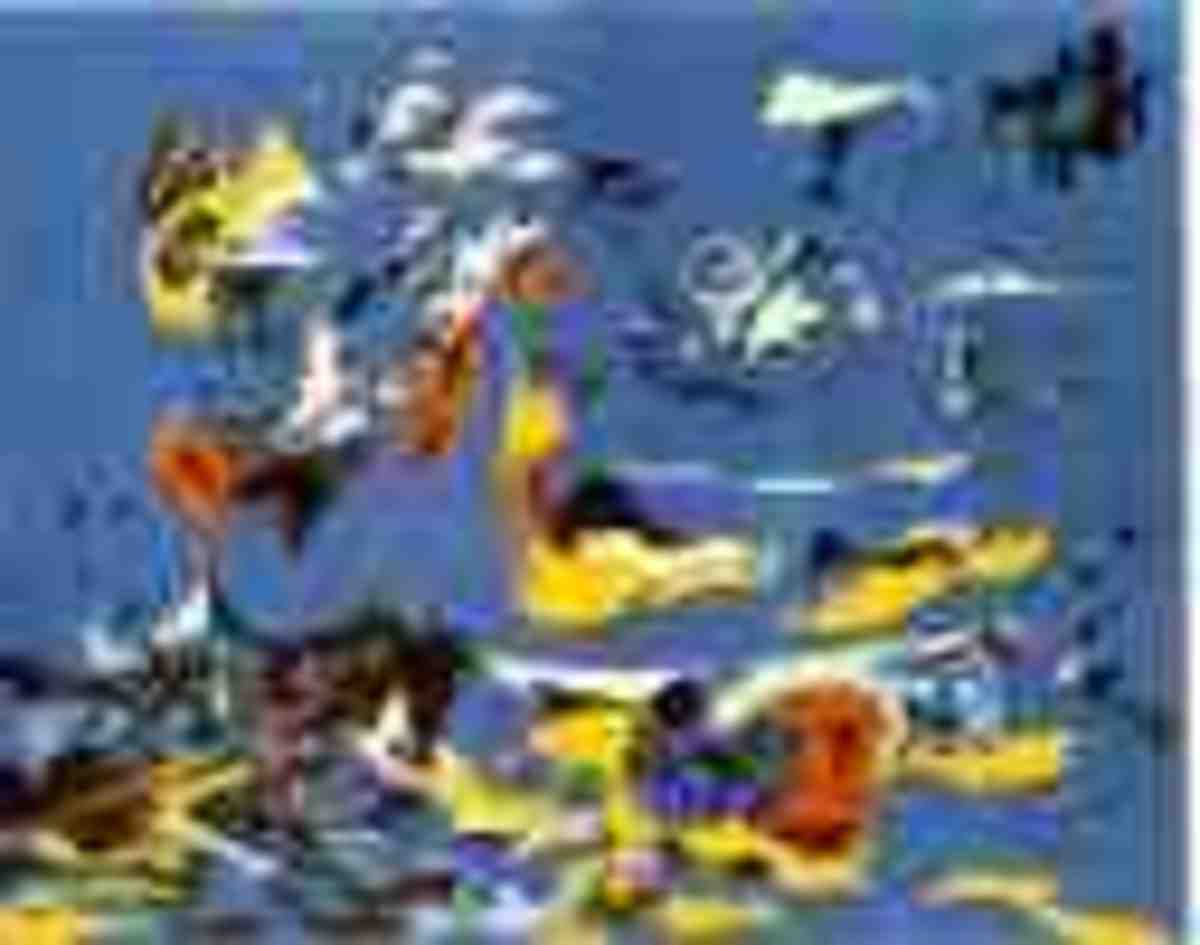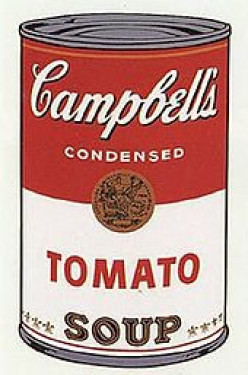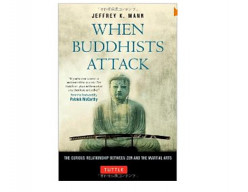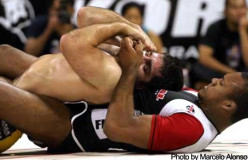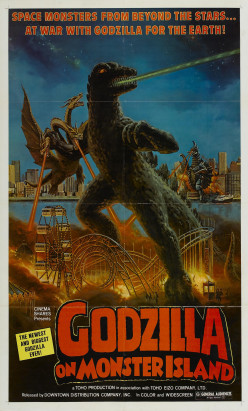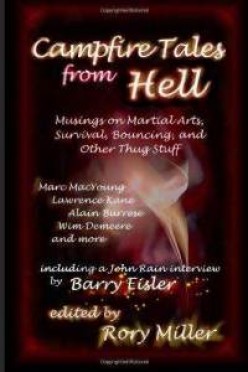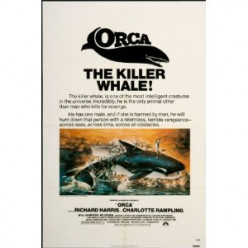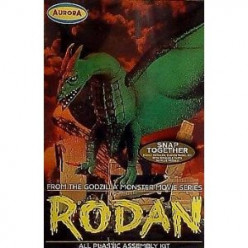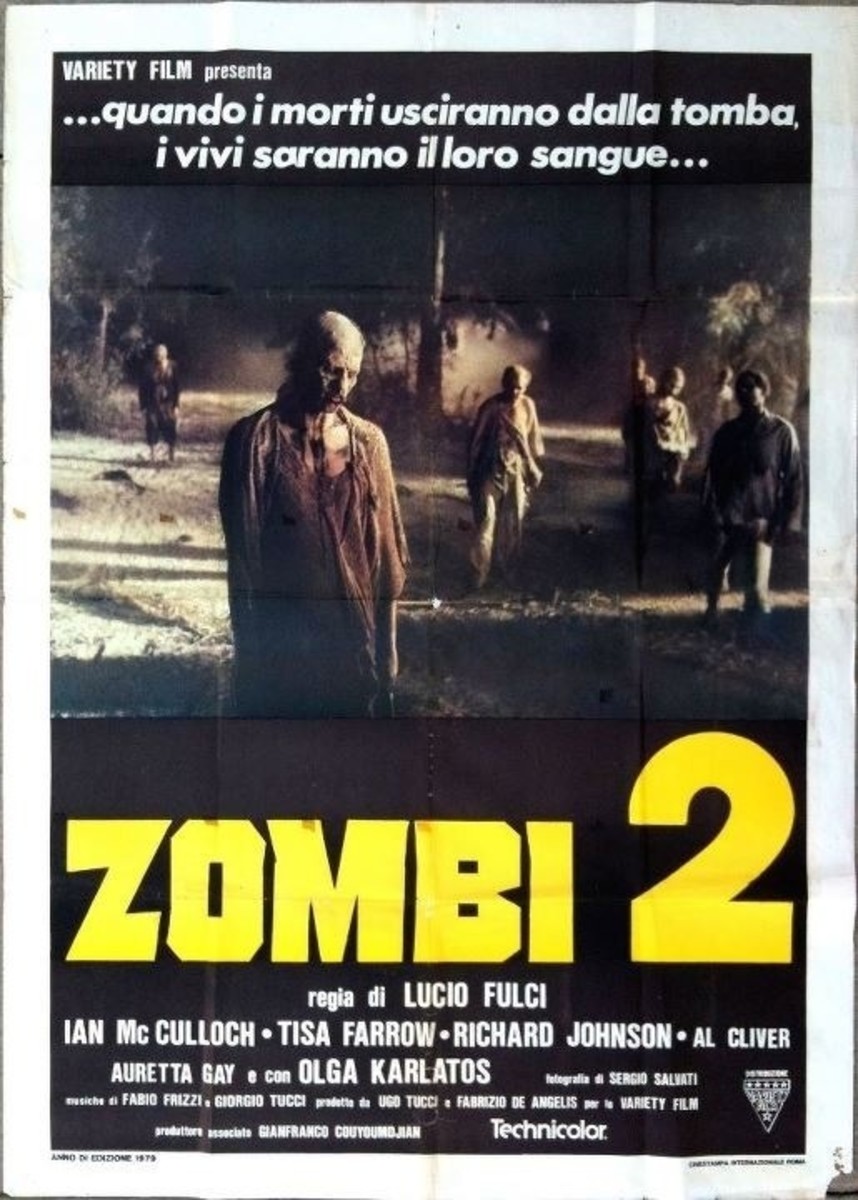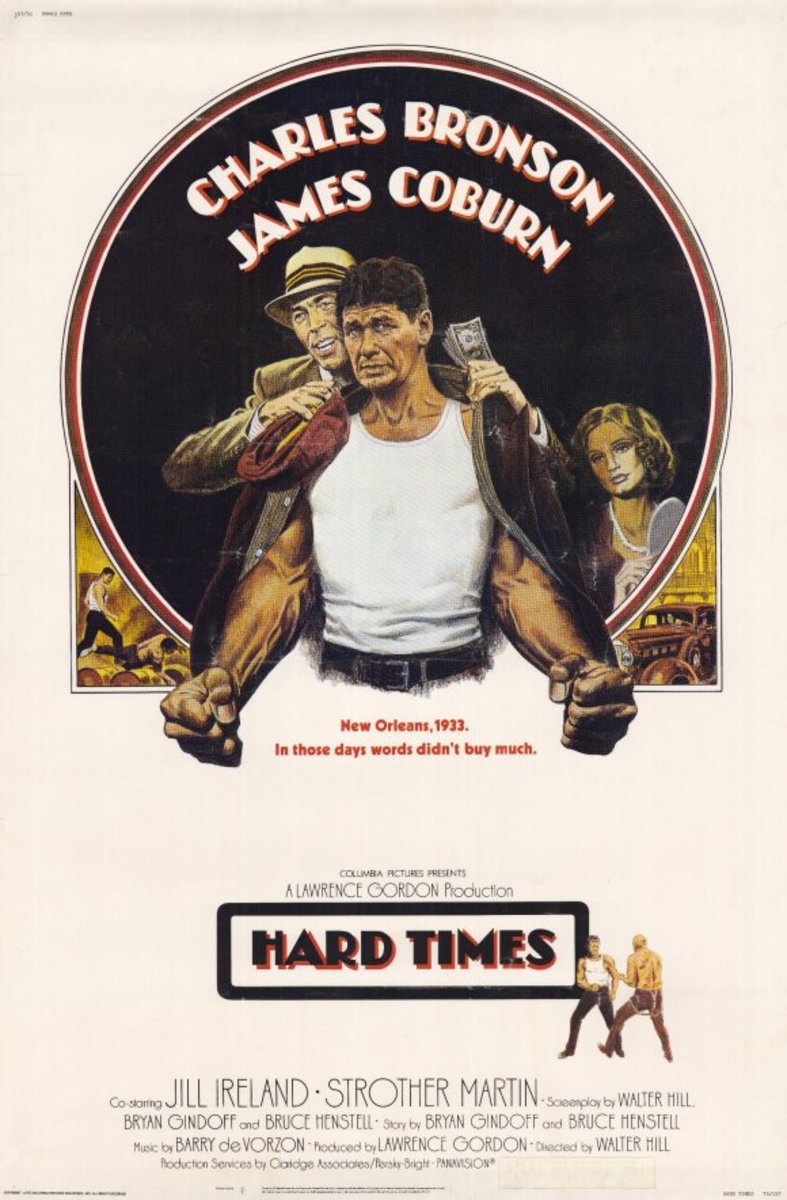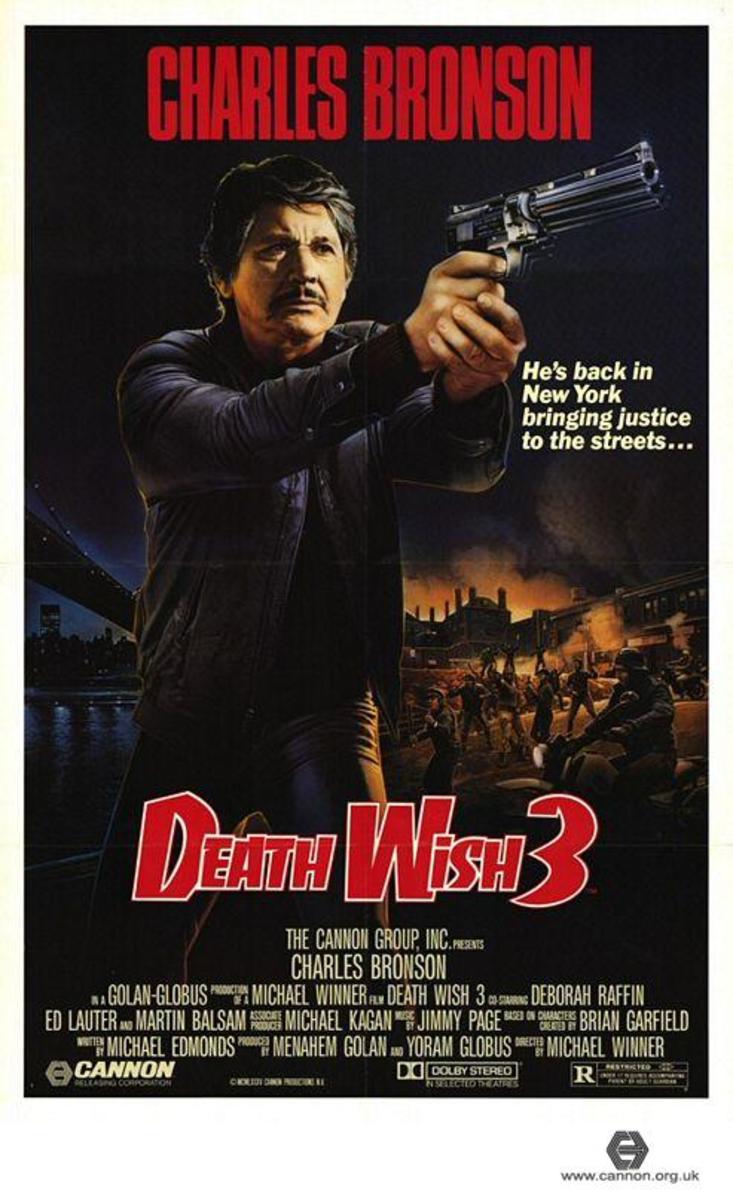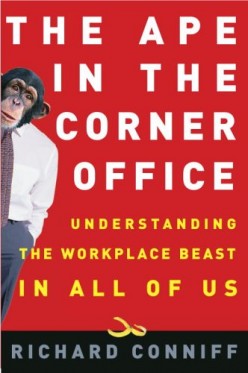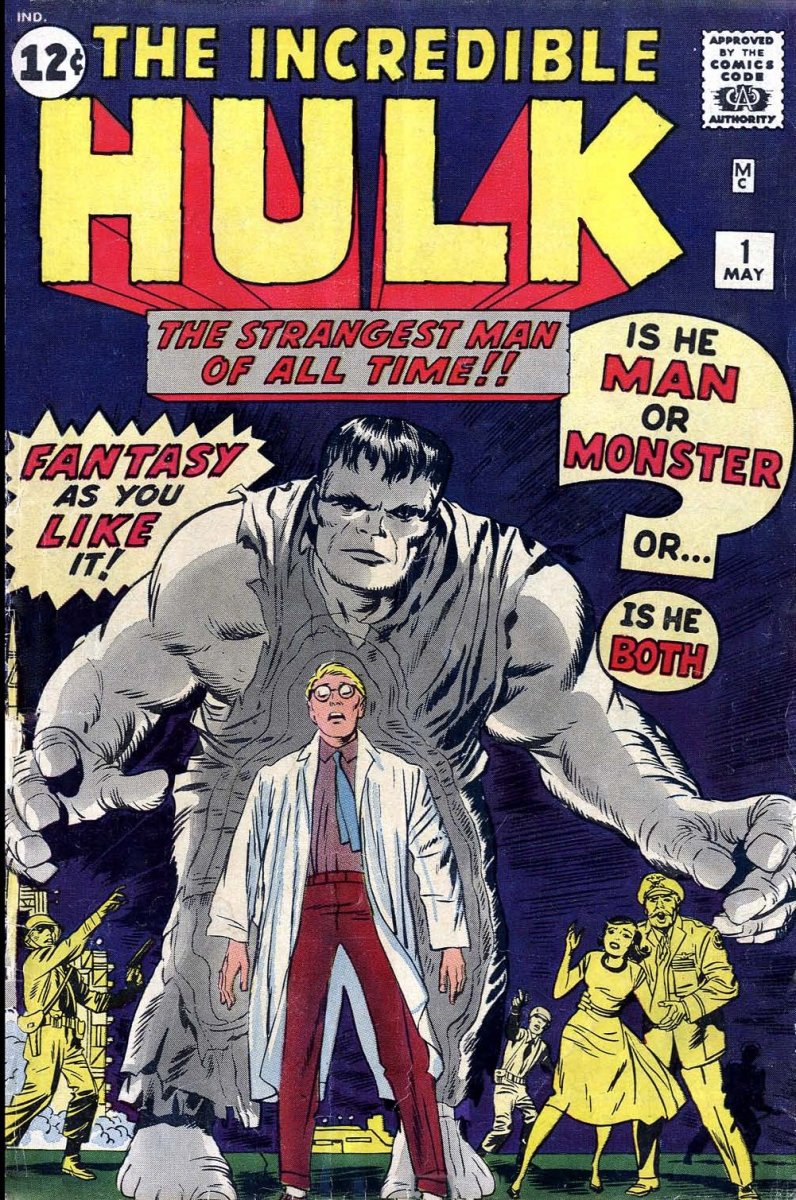 80
80- 0
Teenage Monster Memories
Some random memories about watching AIP's classic teen monster movies.
- 0
Daredevil and Black Widow Long Ago
The classic early 1970s Black Widow/Daredevil team-up should not be forgotten.
- 1
Not Your Twilight Zone: Rod Serling's Night Gallery
Rod Serling returns, with a focus on less Twilight Zone fantasy and much more horror.
- 0
The Struggle for Hope in Harlan Ellison's "I Have No Mouth, and I Must Scream"
Bleak despair drags down the struggle for survival in Harlan Ellison's science-fiction classics, "I Have No Mouth, and I Must Scream," but hope exists in the hopeless tale.
- 0
The Snowman Cometh
A marauding 25-foot-tall Yeti terrorizes a California ski resort and only nuclear warhead tipped crossbows can stop him. Welcome to the 1970's and the Golden Era of horror paperback novels.
- 0
Paperbacks from Hell: The Twisted History of '70s and '80s Horror Fiction LIVES FOREVER!
Grady Hendrix takes horror novel fans back to the grand age of crazed fiction: the 1970s and 1980s glory gory days of the trashy horror paperback.
- 0
The Complete Spectre James Bond 007 Comic Strip Returns to Print
James Bond: Spectre: The Complete Comic Strip Collection reprints the wonderful newspaper serial that faithfully adapted Ian Fleming's 007 novels.
- 0
Vince Vaughn and Immorally Moral Brawl in Cell Block 99
Vince Vaughn portrays a immoral moral man whose life decisions lead him to incarceration. Despite the noble nature of this anti-hero, the character of Bradley Thomas deserves his fate.
- 0
Michael Keaton's Vulture From "Spider-Man: Homecoming" Rages On
Michael Keaton's vicious and brutal Vulture from "Spider-Man: Homecoming" shares much of the rage found in the Silver and Bronze Age version of the villain.
- 0
HUMANS AMC Sci-Fi Show: More Human Than A Clockwork Orange
Channel 4 UK/AMC's original series HUMANS (aka HUM∀NS) ponders the frequently asked eternal science-fiction question asked of aliens, robots, and earth dwellers: "What does it mean to be human?"
- 0
D.C. Comics' "The House of Mystery": A 1970s Hit
D.C. Comics' "The House of Mystery" book is an example of solid genre fiction published in the 1970s that kept the lost artistry of comic book horror anthologies alive.
- 5
The Darkly Changing Life of Breaking Bad's Walter White
Walter White chooses the path of Breaking Bad and discovers the life of a criminal is not exactly one that can be controlled or contained. Life-altering changes are unavoidable.
- 0
Beware That, When Fighting Monsters, You Have Your Alpha Bits
Drawing on the appeal left during the final gasp of classic horror movie monsters, the rather bland cereal Alpha Bits thrived in the 1970's thanks to wonderful -- and humorously-scary -- commercials.
- 0
Peter Cushing's Baron Frankenstein Takes A Turn For The Terrible....And Must Be Destroyed
Hammer's Frankenstein Must Be Destroyed returns Peter Cushing's Baron Frankenstein to the evil and malevolent character born in The Curse of Frankenstein
- 0
An Odyssey through the History of KISS' Music From The Elder
The rock band KISS and Music From The Elder are given a brilliant examination in the music history book Odyssey, a definitive look at a misunderstood and much-maligned rock concept album.
- 2
Send in the Clowns....with Malice and Menace
Strange and mysterious sightings of evil clowns are popping up all over the United State. Has folklore and mythology and cinema horrors come to life?
- 0
Hustling the Homefront: Showtime's Ray Donovan Balances A Life Of Crime And A Family Life
Ray Donovan tries to balance a normal home life with his career as a violent Hollywood fixer. Try as he may, Showtime cable's fixer can't fix his own domestic problems.
- 0
The Train Finally Comes To A Halt For Hell On Wheels' Cullen Bohannon
The torturous life of the Hell On Wheels' anti-hero Cullen Bohannon comes to an ambigious end with the AMC series' conclusion.
- 0
10 Cloverfield Lane: The Safest and Loneliest Place on Earth
The claustrophobic end-of-the-world sci-fi thriller 10 Cloverfield Lane leads viewers to a dark place rooted in the fear of loneliness.
- 0
Werewolf By Night Comes Alive Through Power Records
Marvel Comics' Werewolf by Night was given a tremendous audio theater presentation by Power Records in the early 1970s.
- 0
Janis: Little Girl Blue - Raw Greatness and All Its Conflicted, Emotional Energy
The PBS documentary Janis: Little Girl Blue captures a sad portrait of the singer whose legend and talent endures.
- 0
"Point Blank" (1967) and the Strange Auteur Mix of Cinematic Narrative and Surreal Experimentation
Lee Marvin and John Boorman created a masterpiece in "Point Blank" (1967), a classic crime film that defies narrative conventions to rise to a work of cinematic art.
- 0
The "Mego 8-inch Super-Heroes Worlds Greatest Toys!" Book Perfectly Chronicles Old-Time 1970's Toy Collecting
TwoMorrows Publishing releases the definitive book on the history of Mego Toys and allows all those who grew up in the 1970's to relive great childhood memories.
- 0
Conan the Barbarian's Creator Trades Swords for Gloves, Bare-Knuckles, and Iron Men: Boxing Tales by Robert E. Howard
Robert E. Howard, the author who created Conan the Barbarian, also wrote a number of excellent, hard-hitting boxing tales.
- 2
The Book and Record Relic That Was A Precursor to Captain America: Civil War
In 1974, Power Records of Newark, NJ released a book-and-record that set the foundation (inadvertently) for Captain America: Civil War. And kids really enjoyed this book and others like it.....
- 7
King Kong (1976) Is A Major Television Movie Event And Other Wonders Of The World
If you didn't enjoy watching the debut and rerun of King Kong on NBC in 1978 and 1980, then you are no friend of mine.
- 0
Wrestling's Referee Position to the Butterfly Guard: A Novel Strategy for BJJ Rolling
The Referee Position from wresting can be borrowed in the BJJ game to provide a unique and less-than-expected way to enter into the Butterfly Guard.
- 0
The Bane of Hollywood: The Bulls and Bears of Writing A Spec Screenplay ala The Wolf of Wall Street
The Wolf of Wall Street has a lot for would-be screenwriter to mimic and a lot to avoid.
- 4
The Amazing Way The Amazing-Spider-Man Connected With Its Young, 1960s Audience
Overcoming great odds, succeeding, yet remaining an outcast was part of the pain The Amazing Spider-Man had to endure. Such pain allowed him to connect with an alienated audience in the 1960's.
- 0
Marvel Comics in the 1960s REDUX
The 1960's saw Marvel Comics redefine the American comic book and these classic tales allow for much personal recollection and introspection. The book Marvel Comics In The 1960s helps with this cause.
- 0
Those Never To Be Forgotten Themes from 1960s and 1970s Cult Movies
Amazing soundtracks and scores from previous generations of cult movies continue to find new audiences and receive long deserved accolades.
- 0
Philly Targeted by Assignment Terror: More UHF Memories of Paul Naschy
Supernatural monsters meet science-fiction in a hodgepodge horror film that run on UHF TV throughout the 1970's.
- 0
When the Werewolf of Spain Came to Philly: UHF Memories of Paul Naschy
Paul Nashcy's Werewolf outings were wild, unique, and over the top enough to stand out in the 1970's and early 1980's when they were a staple on Philly UHF TV.
- 0
Turning the World into a Sanctuary for Disaffected Youth, the Manga Way
Sanctuary is a classic crime manga from the 1990's and volume one effectively lays out the generational conflict that underlies the themes.
- 2
Understand Me Says the 2000 Man of Kiss and Rolling Stones Song Lore
2000 Man remains one of the more unique songs from the Rolling Stones and it was famously covered by Ace Frehley of Kiss
- 2
A Portrait of the Struggles of the Man Who Was Dracula in No Traveler Returns: The Lost Years of Bela Lugosi
Bela Lugosi traded on his Dracula fame from 1945 to 1950 to a greater degree than many modern fans realize. The new book NO TRAVELER RETURNS reveals this lost history.
- 4
In the Hands of an Indifferent God: Robert E. Howard, Conan the Barbarian, and the Angry, Aloof Crom
Crom, the angry God of Conan the Barbarian lore, must be examined from the perspective of Robert E. Howard's own indifferences.
- 0
The Velvet Underground and Strange Reflections on NYC and Addictions
Drug imagery in the works of the Velvet Underground reflect the seediness and hopelessness of the NYC of 50 years ago.
- 0
Jason vs. Freddy vs. The Script Reader
Script coverage is an essential part of the Hollywood machine. Coverage for the an unproduced Jason vs. Freddy script is featured as an example.
- 2
Destroyer (1976): The Concept Album that Established Kiss as Mega Stars
Destroyer was the concept album that helped Kiss achieve mainstream success and launched the Super Kiss era.
- 6
You Wanted the Best, You Got the Drama: Kiss and the Rock and Roll Hall of Fame Media Merry Go Round
Kiss tumultuously enters the Rock and Roll Hall of Fame as personal problems become public feuds.
- 0
Outland Is High Noon in Outer Space for Sean Connery
Sean Connery tries to solve a drug conspiracy....on the moon...in 1981's Outland.
- 8
When Comic Books Addressed Social Commentary: The Classic and Controversial Drug Storylines of Yesteryear
E.C., Marvel, and D.C. Comics all tackled the subject of drug addiction in famous issues in prior decades.
- 0
Tragedies and Nocturnes: The True Curse in Hammer Films' Curse of the Werewolf
Hammer Films' Curse of the Werewolf offers more than a man turning into a human beast. Social, psychological, and spiritual themes allow the film to rise above monster-run~amok werewolf movies.
- 0
The Aurora History and Price Guide For Classic Model Kit Fans
The Aurora History and Price Guide covers the basic points about the history of the company and is an excellent trip into classic horror nostalgia.
- 0
The Anatomy Lesson and Alan Moore's Vision That Forever Changed the Saga of the Swamp Thing
Alan Moore reshaped the landscape of the Swamp Thing comic book and also posed quite a number of interesting philosophical questions about identity and self-awareness.
- 0
Discovering Value in a Lost Life: Johnny Cash Sings Sunday Morning Coming Down
Johnny Cash's dark themes resonate through Kris Kristofferson's melancholy song.
- 2
Hands As Dangerous As Swords: How the Iron Age Influenced Eastern and Western Martial Arts
The swords born of the Iron Age had a tremendous influence on Asian martial arts and western combat sports.
- 1
Frankenstein Must be Read: The Hammer Frankenstein Reviewed
Bruce G. Hallenbeck has authored the definitive tome on the Hammer Frankenstein movies.
- 0
A Dog's Life Brings Death: The Tortured Soul of The Hound as Seen Through A Game of Thrones
The Hound remains one of the more compelling dark and brooding characters in Game of Thrones. Now we can look at what lies under his gruff exterior.
- 0
Reading The Cigarette Century: Reflections on the Cultural Impact of Smoking from 1900 to 1970
Alan M. Brandt's lengthy tome on the history of cigarette smoking in the 20th century allows us to reflect on the culturally significant role tobacco once played in society.
- 0
The Fight Club of the Self: Transgressive Fiction and the Lonely Journey of the Genre's Protagonists
Transgressive antiheroes in works such as Fight Club at at odds with a society they want to be part of.
- 0
The Past Is Soon To Be Here: Futurism and the Time When Science-Fiction Received an Art Movement
The Futurism Movement is looked at through its historical lens.
- 2
The Equally Amazing Super Villain Generation Gap In The First 12 Issues of The Amazing Spider-Man
One of Stan Lee and Steve Ditko's most effective conventions in the early issues of The Amazing Spider-Man involved drawing distinct lines between disaffected youth and aging authority figures.
- 3
Lake Monster Mysteries Solved! The Ultimate Tome On Revealing the Truth About These Mysterious Creatures
Do mysterious creatures live in lakes around the world. According to this excellent book....NO WAY.
- 0
Livy: Wishing for the Better Days of the Past when Ancient Rome was the Present
Livy waxes nostalgic on Rome when it was truly Rome.
- 2
The Lesser Known Werewolf Stories of Conan The Barbarian's Creator Robert E. Howard
Two classic Robert E. Howard werewolf works are discussed.
- 4
Offbeat Script Writing Books for Serious Screenwriters
Three excellent script writing books cover the art of screenwriting from unique perspectives. This overview highlights them for the ''How to screenwriting'' book collector.
- 0
Altering the Mind Mundanely: We Can Remember It for You Wholesale, the Work that Inspired Total Recall
Philip K. Dick noted there was not much of a difference between real and false memories in terms of the impact both can have on shaping a personality.
- 0
The Future Today and Yesterday: The Strange World of Cyberpunk
The strange science-fiction subgenre draws popularity from its bleak vision of the future derived from a bleak vision of today.
- 0
Reflections on Cynicism, Truth and Liberation in the Zen Notion of Life is Suffering
Zen is rooted in realism and, sometimes, reality might have a cynical edge. But, that is life and life is suffering.
- 0
The Road Warrior and the End of the Industrial Revolution, the Civil Society and the Natural World
The 1982 film The Road Warrior offers a very realistic vision of what happens amidst societal collapse.
- 0
Tying the Basics of BJJ to a Unique and Personal Game
A foundation in the basics in BJJ game sets the stage for your ability to develop to a high level competitor or hobbyist.
- 1
Daredevil in the '70s: Precursors to Frank Miller's Legendary Run
Frank Miller was able to draw from the work of other writers and artists while working on the classic "Daredevil" comic.
- 1
The Nature Of Abstract Art Criticism and Dismissals
The Abstract Art Movement makes more sense than errant criticism suggests.
- 0
Andy Warhol: The Images of Classical Antiquity Just Don't Know Where They Are Going
Pop Art forever changed the way we look at classical art.
- 0
To Be Experienced and Not Watched: The Cinema of Federico Fellini Films
Fellini films are experiential in nature if not always narrative. Those that have never seen Fellini movies may wish to invest a little time viewing them.
- 0
Book Review: When Buddhists Attack, A Brilliant Work on Zen and the Martial Arts
An original look at Zen & the arts from a modern view point is captured in this excellent book.
- 0
Invest a Little Time in the No Gi Brazilian Jiu Jitsu Game
The Gi attracts a lot of practitioners to Brazilian Jiu Jitsu. Sometimes, taking off the Gi is a must to shake things up and enhance other skills.
- 0
The Less-Than-Commonly-Mentioned Benefits to Competing in Brazilian Jiu Jitsu Tournaments
Glory is not the only thing gained through competition. The tournament mat becomes a laboratory for the learning process.
- 2
Godzilla vs. Gigan: An Unnecessary Trip to Monster Island
Godzilla movies are usually fun, but this entry in the series really contributed to its demise. Godzilla vs. Gigan is among the worst Godzilla videos ever released.
- 0
Campfire Tales From Hell: One Very Unique Martial Arts Anthology Book
Campfire Tales from Hell offers a unique anthology on personal recollections about the martial arts and self-defense.
- 2
Orca: The Bizarre Jaws Clone
Orca cashed in on the success of Jaws and still draws in cable TV audiences up really late at night.
- 0
RODAN - Aurora Model's Monster of the Movies Re-issue
The brilliant Aurora Re-Issue brings back memories of once popular sci-fi - the Toho Godzilla movies.
- 1
Lucio Fulci's ZOMBIE: The Exploitation Classic That Never Dies
Long before The Walking Dead and zombie-mania went mainstream, there was the imported Italian grindhouse classic.
- 0
Living in Hard Times With Charles Bronson
Charles Bronson and James Coburn star in a brilliant tale of blue collar hard times and bareknuckle boxing.
- 3
Charles Bronson: The Cannon Years
Charles Bronson experienced a career resurgence with B-movie Cannon Studios.
- 0
Reflections of the Ape in the Corner Office
The Ape in the Corner Office: Our Evolutionary place in the workforce is revealed.
- 0
The Wolf and the Seven Young Kids, The Brothers Grimm, and the Evil that Men Do
Dark morality lessons are present in the works of the Brothers Grimm.
- 0
The Incredible Hulk - Remembering the Old, Dumb Hulk and His Childhood Angst
The original version of The Incredible Hulk was not so much a dumb brute as much as he was a disaffected child.
